空崆建筑 | 大樂之野·重慶·四面山
“在重慶(Chung-king)城待的時(shí)間有點(diǎn)長(zhǎng),讓我生出強(qiáng)烈的渴望,想要呼吸一點(diǎn)新鮮空氣。由重慶通往各地的大路中,有一條從長(zhǎng)江右岸的海棠溪(Hai-tang Chi),通往貴州(Kwei Chou)境內(nèi)的桐梓縣(Tung-tsz Hien),我迫切地想要開啟這段旅程。”
——莊延齡(Edward Harper Parker,1849~1926)
▼項(xiàng)目概覽,overall of the project ?唐徐國(guó)
項(xiàng)目區(qū)位與背景
Project location and background
重慶江津四面山鎮(zhèn)——“因四面山峰圍繞,溝谷縱橫,皆為大山而得名。”
Simianshan Town, Jiangjin, Chongqing——”Because it is surrounded by mountains on all sides, and the valleys are criss-cross, it is named for the mountains.”
▼黃昏景,Dusk View ?唐徐國(guó)
國(guó)內(nèi)著名民宿品牌大樂之野在西南地區(qū)的第一家山居民宿,就選址在這四面群山環(huán)繞之中,空崆建筑受邀為項(xiàng)目進(jìn)行了整體設(shè)計(jì),希望通過這個(gè)項(xiàng)目讓人們重新認(rèn)識(shí)這片隱秘的美好之地。業(yè)主希望在項(xiàng)目中安排24間客房,并希望大部分客房能夠有獨(dú)立的私湯泡池以滿足當(dāng)?shù)厝甓燃俚男枨蟆_€需要配置足夠大的餐廳、咖啡吧、茶室、泳池、廚房、布草、員工宿舍、停車位等配套設(shè)施。
▼地圖區(qū)位,location ?空崆建筑
▼場(chǎng)地分析,analysis diagram ?空崆建筑
The first mountain-dwelling resort of the Lost Villa(the Hotel Management Company) in Southwest China is located here. Kong_architects was invited to design for the project. The owner hopes to arrange 24 guest rooms in the project, and most of the rooms with private hot spring pools. It is also necessary to configure a big dining room, coffee bar, tea room, swimming pool, kitchen, storage room, staff dormitory, parking spaces and other supporting facilities.
▼三組建筑,three buildings ?ddw
▼遠(yuǎn)視,viewing the project at distance ?ddw
建筑-山-人的關(guān)系
Relationship between architecture-mountain-man
項(xiàng)目地塊位于一個(gè)開口朝西的U型大山坳中,落位于半山,坐東朝西,可觀遠(yuǎn)山落日。原始場(chǎng)地上有若干戶山民老宅,山民搬遷后,利用老宅的宅基新建民宿,建筑位置并無更改。而昔日山民在半山上開墾的梯田,種下的果樹,都保留下來成為了我們整個(gè)場(chǎng)地內(nèi)的人工-自然景觀。
▼觀山區(qū)看U型山坳,viewing the U-shaped mountain ?唐徐國(guó)
▼建筑結(jié)構(gòu)及室內(nèi)空間軸測(cè)拆解,axonometric drawings ?空崆建筑
The project site is located in a U-shaped mountain valley with an opening facing west. where you can watch the sunset . we used the foundations of the old cabins to build new buildings, and the location of the buildings remained unchanged. The terraced fields and fruit trees planted by the farmer in the past have been preserved and become the artificial-natural landscape of our entire site.
▼隱山房,Yinshan Room ?唐徐國(guó)
▼二樓泳池咖啡,second floor pool coffee ?唐徐國(guó)
▼茶室,tea room ?唐徐國(guó)
我們根據(jù)山地形態(tài)地貌和建筑基地落位,規(guī)劃設(shè)計(jì)了觀山、倚山、隱山三組建筑,在建筑與山體的這三種關(guān)系下, 通過建筑和空間的設(shè)計(jì)引導(dǎo),為人與自然建立新的互動(dòng)關(guān)系,讓人在建筑和空間的游走中,獲得與自然交流和對(duì)話的新視角和新體驗(yàn),形成了人與山之間關(guān)系的重構(gòu)。
▼多跑折返樓梯草圖,analysis diagram of the staircase ?空崆建筑
According to the mountain topography and the location of the building base, we planned and designed three groups of buildings: Guanshan(observing mountains), Yishan(rely on mountains), and Yinshan(hidden in mountains). Under these three relationships between buildings and mountains, we build a new space for man and nature. The interactive relationship allows people to gain a new perspective and new experience of communication and dialogue with nature during the wandering in buildings and spaces, forming a reconstruction of the relationship between people and mountains.
▼紅片墻與樓梯,the red wall and the staircase?唐徐國(guó)
▼折返多跑樓梯,可以讓人從5個(gè)不同的標(biāo)高進(jìn)入到相應(yīng)的建筑功能區(qū),the multi-run stairs can allow people to enter the corresponding building function area from 5 different elevations ?唐徐國(guó)
▼兩個(gè)建筑之間的夾縫空間中的折返樓梯,
the staircase in the crevice space between the two building ?唐徐國(guó)
▼樓梯細(xì)部,details of the staircase ?空崆建筑
而在建構(gòu)策略上,我們從尊重地形與氣候出發(fā),盡量利用原始宅基和吊腳樓吊層原理,減少山體土方開挖,保留了場(chǎng)地內(nèi)的大部分巨石和樹木,并納入到與建筑空間的對(duì)話中。
▼各類屋檐構(gòu)造研究草圖,analysis diagram ?空崆建筑
In terms of construction strategy, we started from respecting the terrain and climate, reduced the excavation of earthwork on the mountain, retained most of the big rocks and trees in the site, and incorporated them into the dialogue with the architectural space .
▼門斗灰空間,grey space ?唐徐國(guó)
▼雨天的清晨看倚山房,views in rainy day ?丹丹唐徐國(guó)
▼從山間小徑看向公區(qū)的咖啡和泳池區(qū),
the view from the mountain path to the coffee and pool area ?空崆建筑
例如:利用輕薄而出挑深遠(yuǎn)的大屋面,可以在多雨環(huán)境中對(duì)建筑的墻面與基礎(chǔ)進(jìn)行最大限度的保護(hù),避免雨水沖刷和濺水侵蝕,極大的延長(zhǎng)建筑壽命。
▼隱山房私湯庭院及對(duì)景研究草圖,analysis diagram ?空崆建筑
For example,The thin and large roof can protect the wall and foundation of the building in rainy, wet environments, avoiding rain erosion and splash erosion, and greatly prolonging the life of the building.
▼檐下空間,space under eaves ?唐徐國(guó)
▼走出共享小客廳,是正對(duì)景觀的私享庭院,the shared small living room and the private courtyard facing the landscape ?唐徐國(guó)
▼無邊泳池,infinity pool ?唐徐國(guó)
同時(shí),我們也在建筑設(shè)計(jì)中設(shè)置了大量的灰空間,一方面也讓建筑群內(nèi)部的通風(fēng)采光都更為良好,一方面也提供足夠多的可供人全天候活動(dòng)的空間。
meanwhile, we also create a lot of gray space, on the one hand, it can improves the ventilation and lighting, and on the other hand, it also provides enough space for people to move around at raining days.
▼餐廳,restaurant ?唐徐國(guó)
▼共享小客廳,the shared small living room ?唐徐國(guó)
▼共享小客廳外面有庭院和遠(yuǎn)山景,the mountain view from the living room ?唐徐國(guó)
▼客房?jī)?nèi)景,interior of the guest room ?唐徐國(guó)
我們也優(yōu)先考慮就地取材,利用本地毛石砌筑擋土墻,而用紅砂巖塊石作為建筑基座和欄桿、踏步的材料;并將回收的老木頭,老石條,老石板,大酒罐子等運(yùn)用到了建筑及景觀當(dāng)中。
We also prefer to use local materials, local rough stones to build retaining walls, red sandstone blocks for building bases, railings, and steps; Recycled old wood, old stone strips, old slates, and large wine jars are also used in our landscapes.
▼鳥瞰,aerial view ?唐徐國(guó)
▼建筑單體模型,model ?空崆建筑
▼公區(qū)入口層及部分客房平面,plan of the public area and part of the guest rooms ?空崆建筑
▼立面圖,elevations ?空崆建筑
▼剖面圖,sections ?空崆建筑
▼結(jié)構(gòu)詳圖,construction details ?空崆建筑
項(xiàng)目名稱: 大樂之野 · 重慶 · 四面山
項(xiàng)目地址: 重慶市江津區(qū)四面山鎮(zhèn)
業(yè)主:重慶江津區(qū)大樂之野酒店管理有限公司
規(guī)劃/建筑/景觀/室內(nèi)整體設(shè)計(jì):空崆建筑
主持建筑師:甘泉
設(shè)計(jì)團(tuán)隊(duì):樂豐、珮均、孫希、楊長(zhǎng)青
建筑方案深化設(shè)計(jì):Wish studio 緯式設(shè)計(jì)
設(shè)計(jì)團(tuán)隊(duì):董大偉、翟開成、徐峰山
結(jié)構(gòu)與機(jī)電顧問:劉濤、顏兆軍
軟裝團(tuán)隊(duì):大樂之野設(shè)計(jì)部
施工單位:上海野有筑裝飾工程有限公司
施工負(fù)責(zé):萬貽鎮(zhèn)、權(quán)相偉、小吳、季小祥
建筑面積:2200平方米
主要材料:毛石、紅砂巖、燒結(jié)磚、鋼結(jié)構(gòu)、木結(jié)構(gòu)、鎂鋁錳屋面、石板瓦、真石漆
室內(nèi)涂料:本杰明·摩爾
室內(nèi)瓷磚:小火柴瓷磚
照明系統(tǒng):西頓照明
設(shè)計(jì)時(shí)間: 2020.11-2021.05
施工時(shí)間: 2021.05-2023.05
攝影:唐徐國(guó)、丹丹、空崆建筑、ddw
Project name: Lost villa in Simianshan, Chongqing
Project type: hotel/resort
Design: kong_architects
Website: kongarchitects.cn
Contact e-mail: [email protected]
Design year: 2020.11-2021.5
Completion Year: 2023.5
Leader designer & Team: Ganquan & Lefeng, Peijun,Sunxi,Changqing yang
Project location: Toudaohe community, Simianshan town, jiangjin district, Chongqing
Gross built area: 2200㎡
Photo credit: Xuguo Tang, Kong_architects, Dandan, ddw
Partner:Wish studio
Clients 
Materials: Rubble, red sandstone, brick, steel , wood , slate tile
Brands: Chai tile, Benjamin Moore paint, CDN lighting
更多相關(guān)內(nèi)容推薦


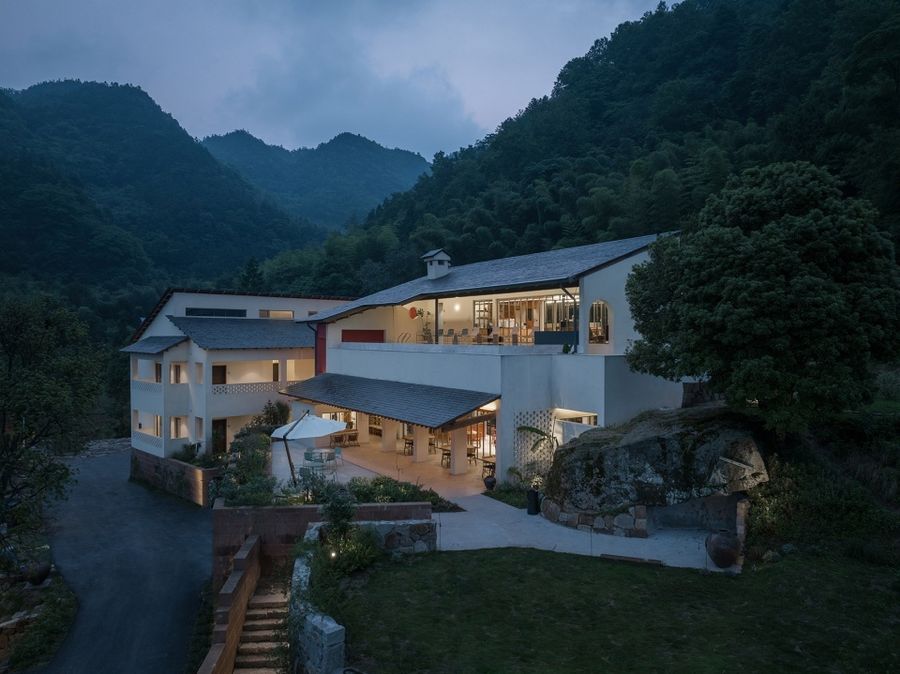
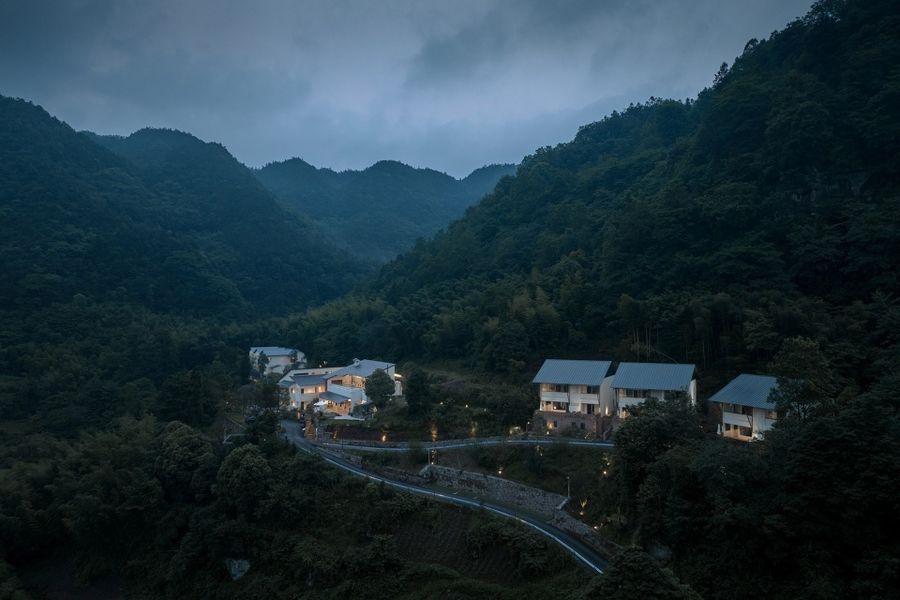
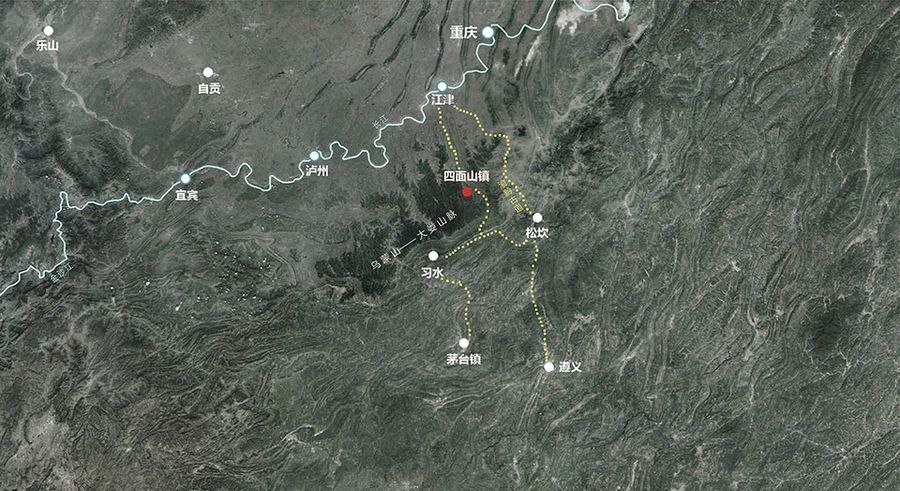
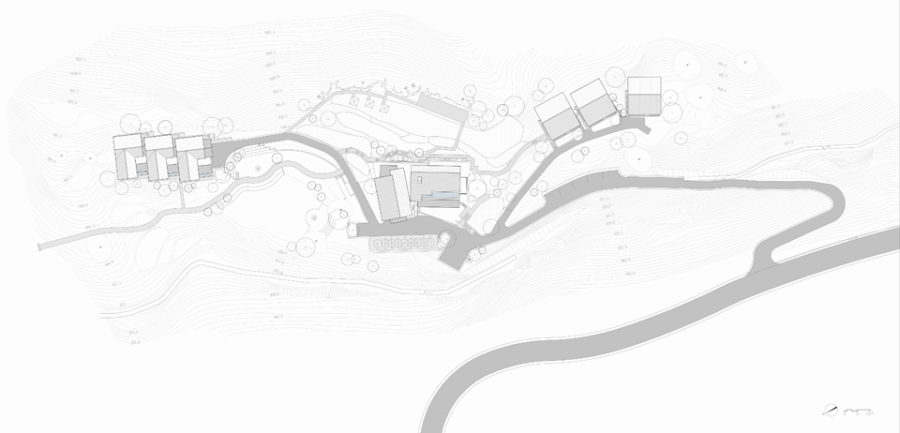
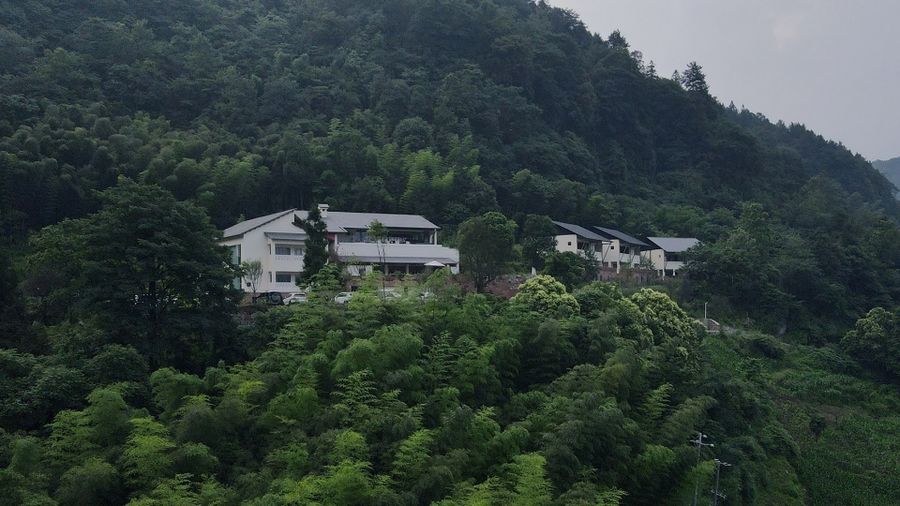
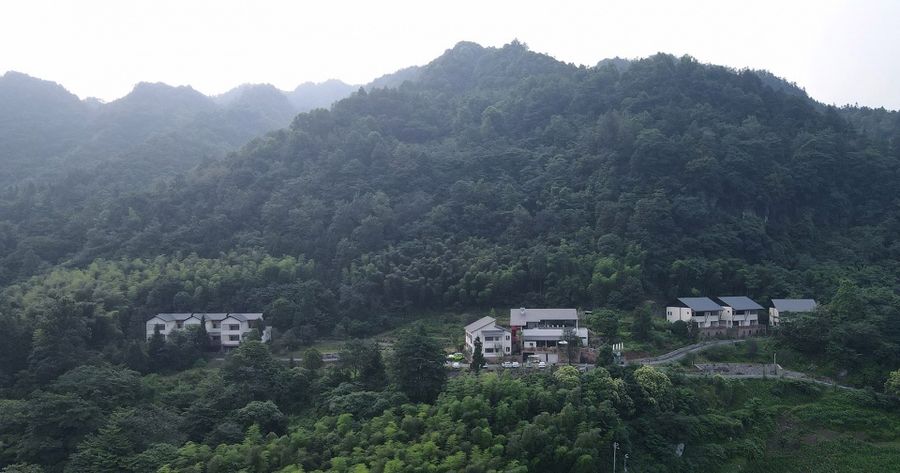
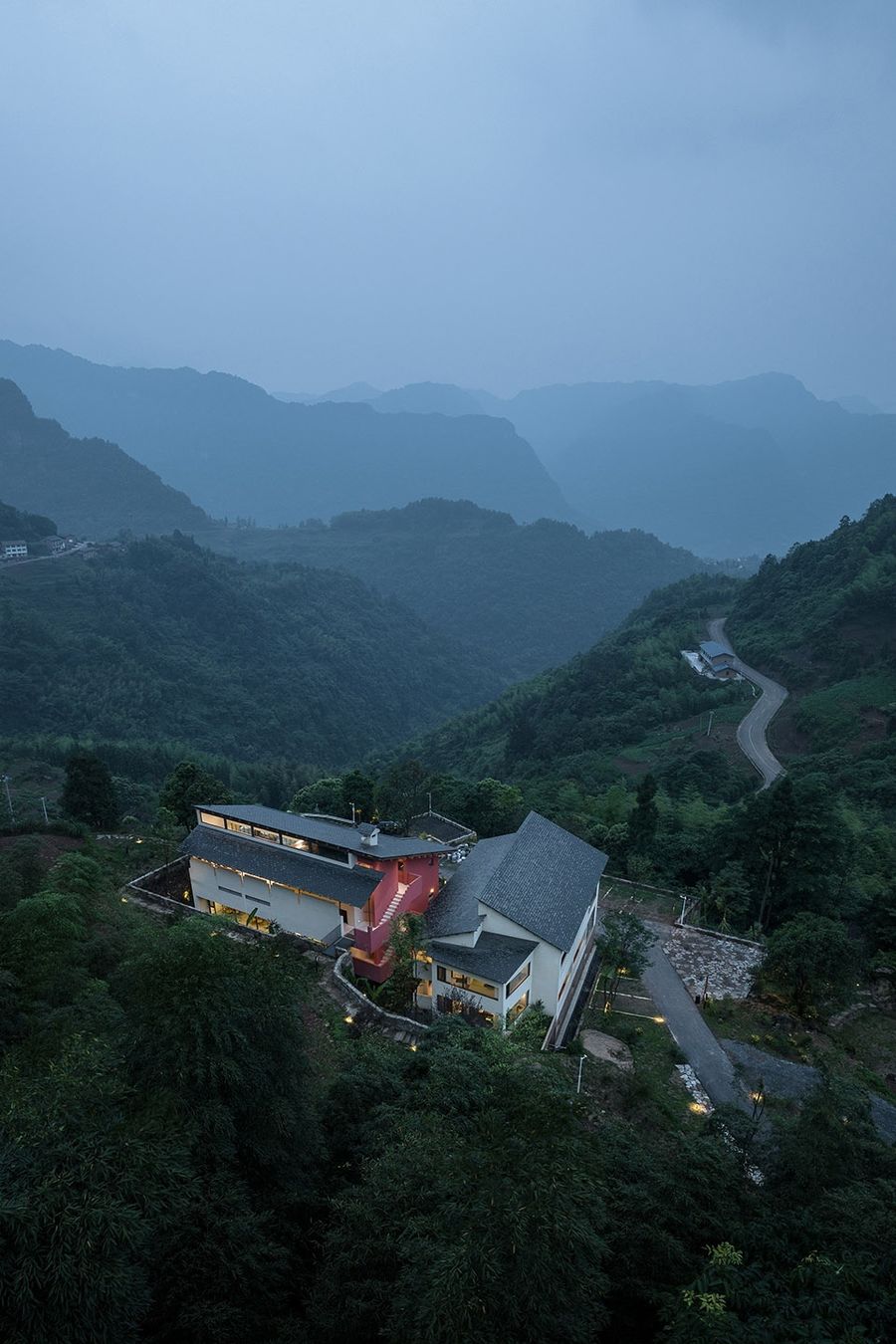
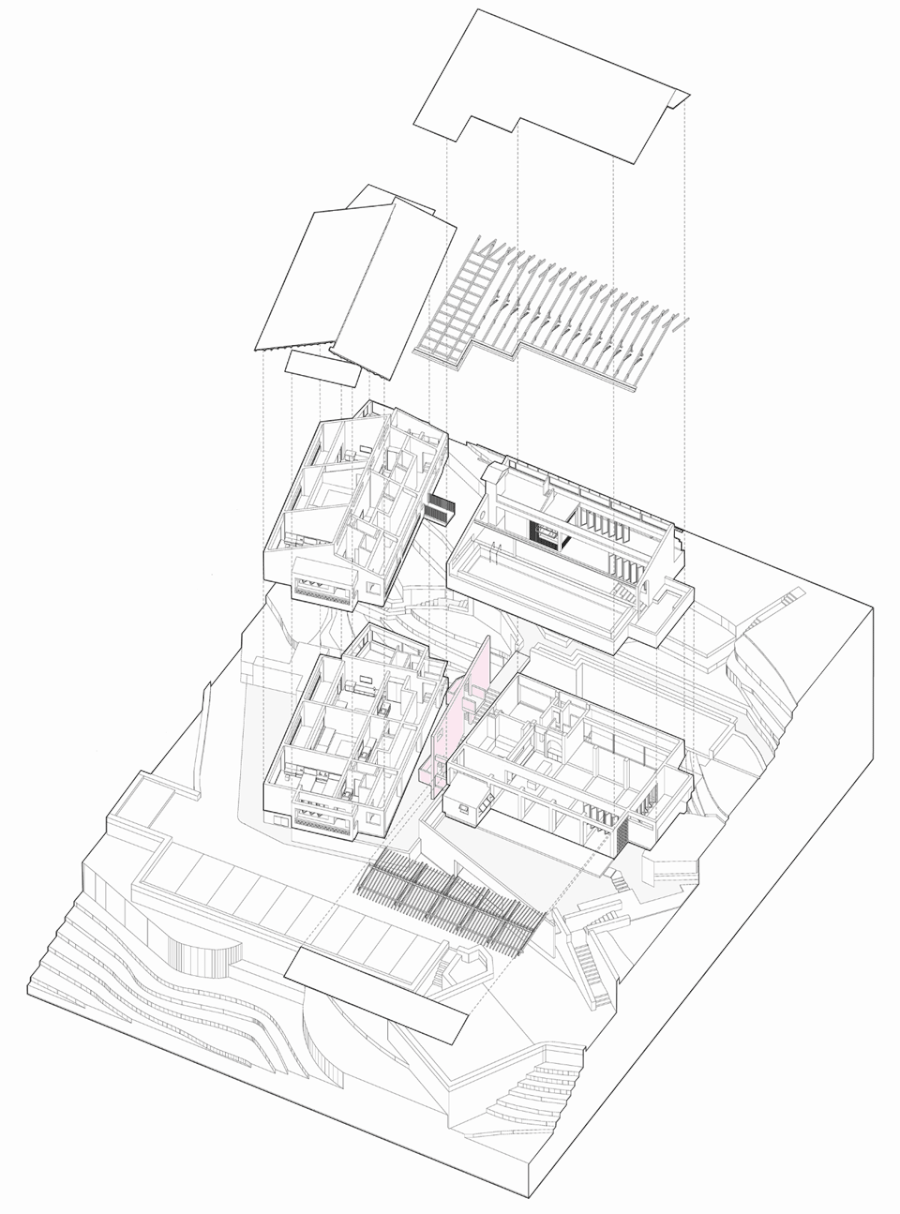
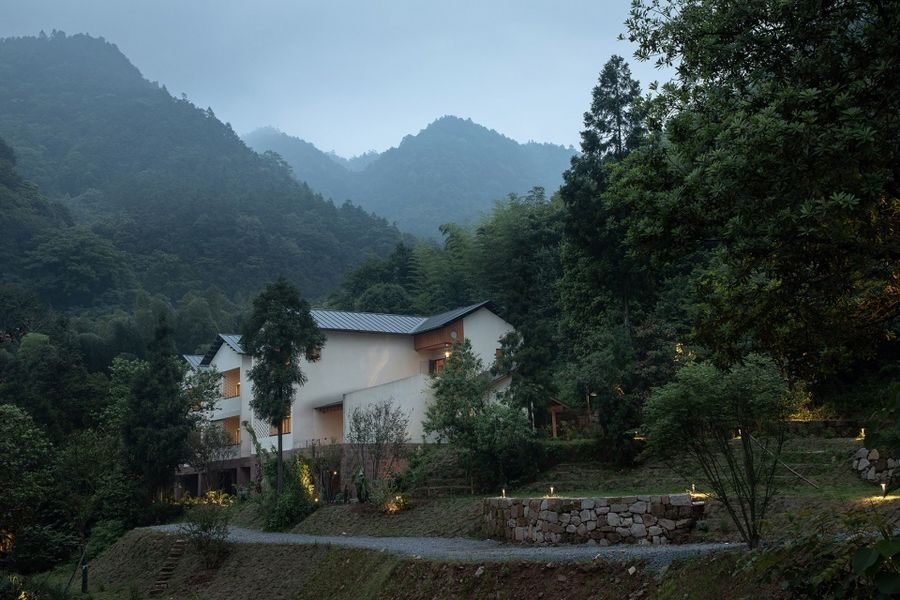
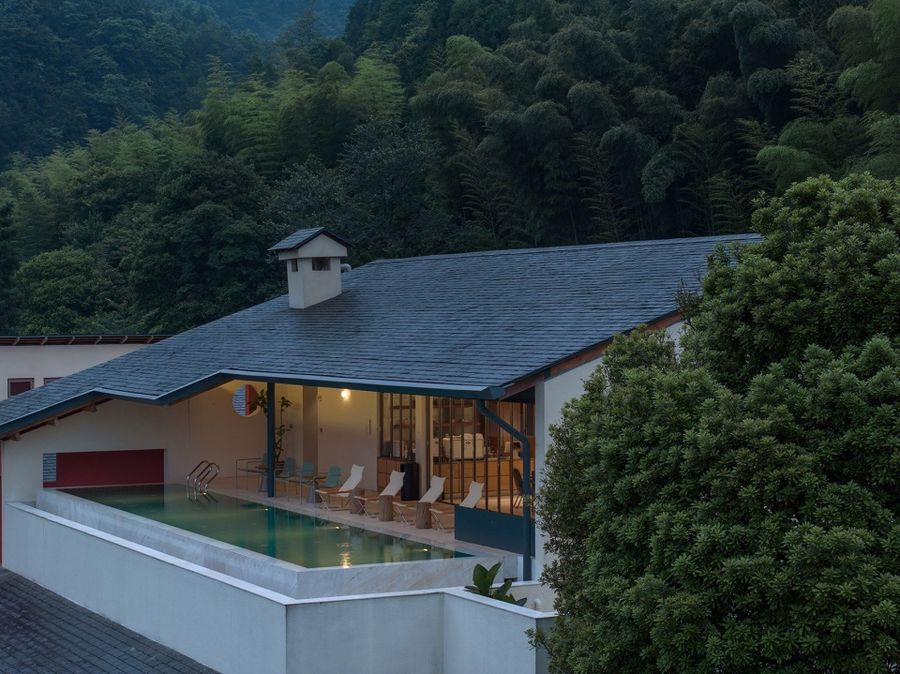
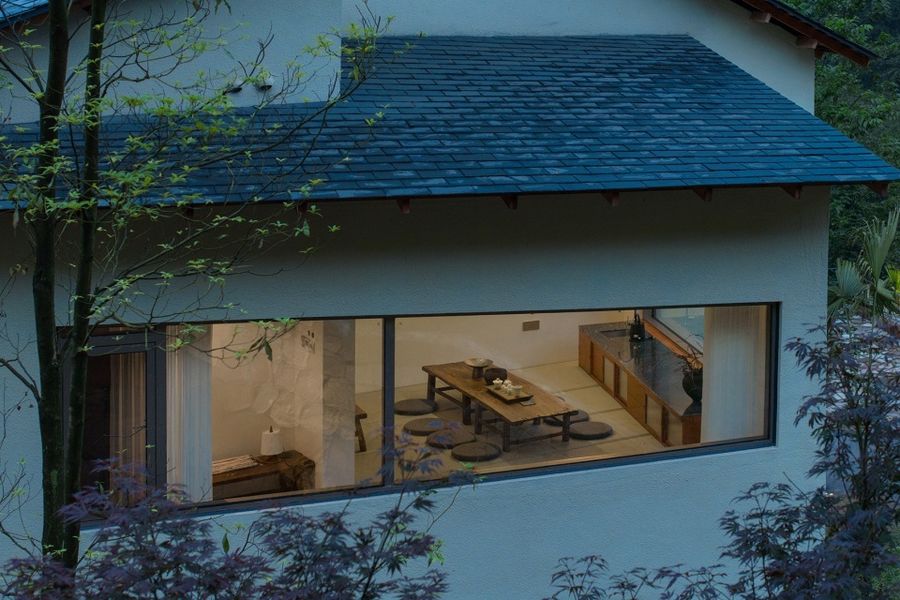
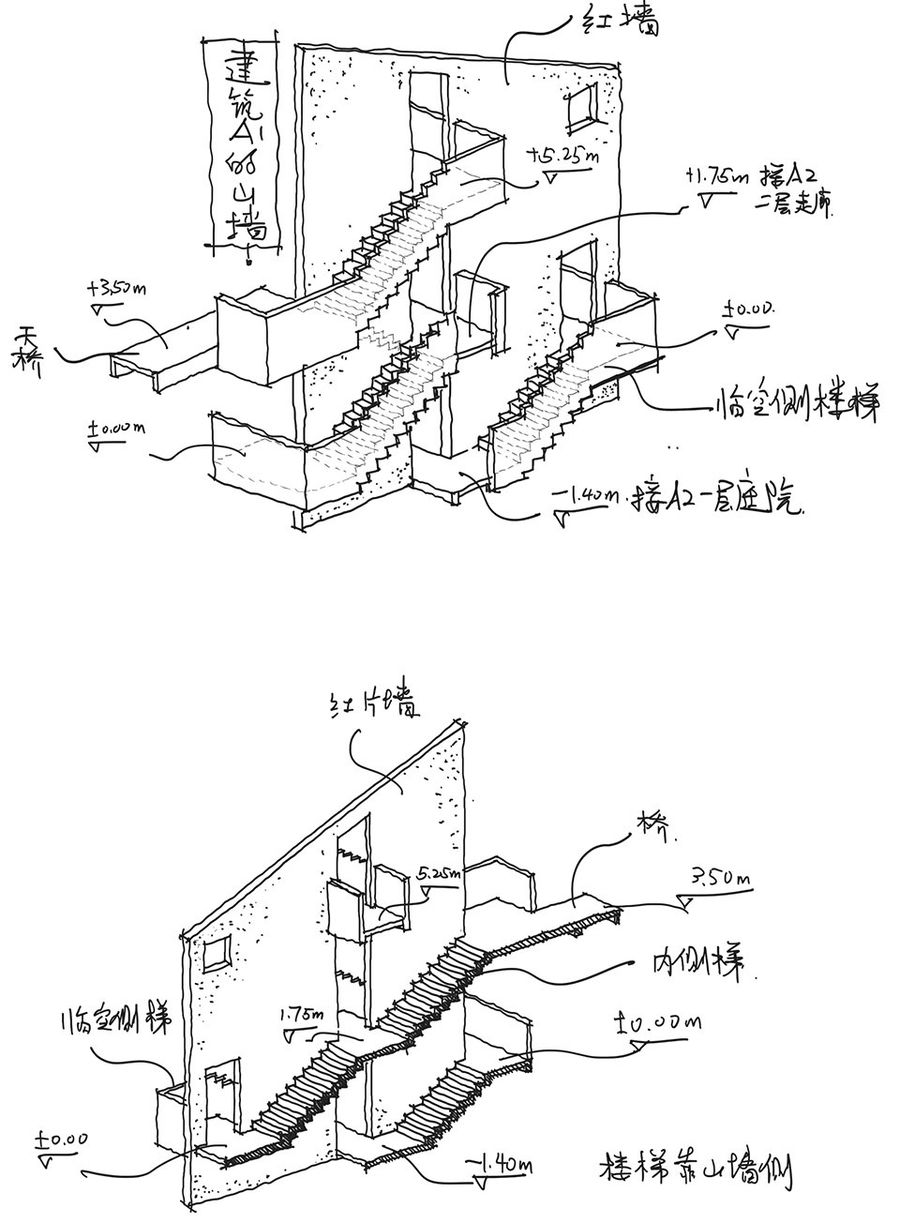
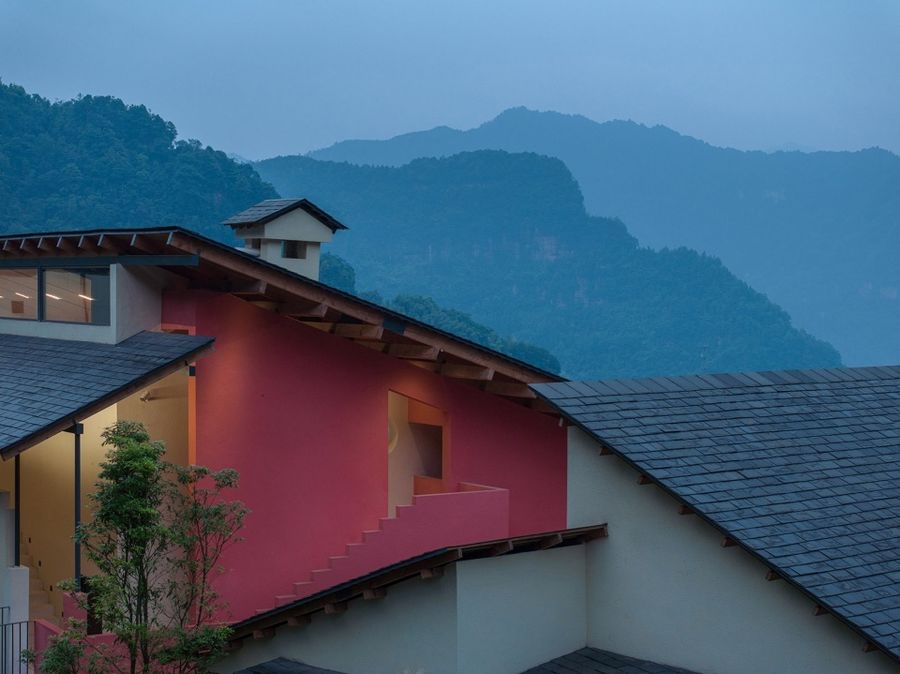
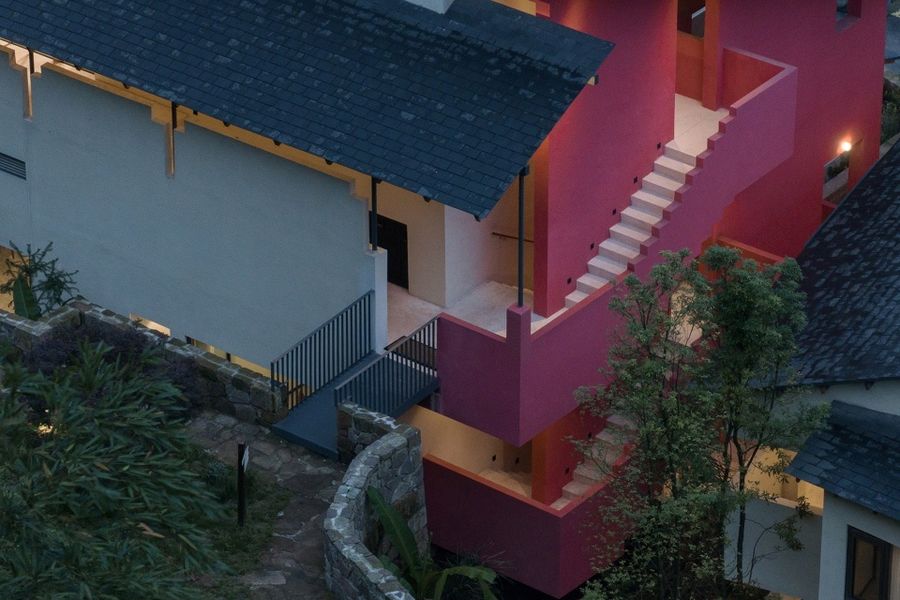
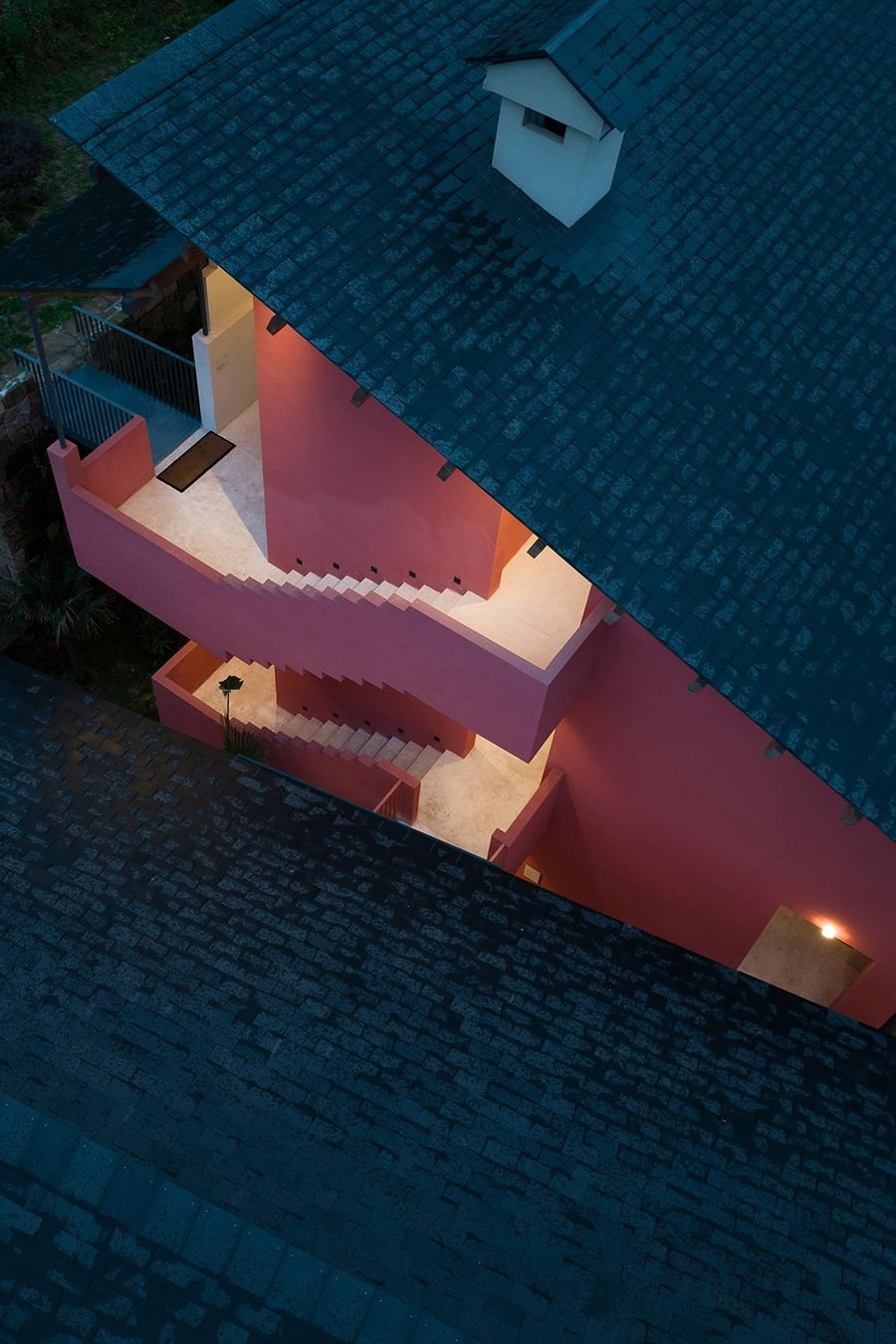
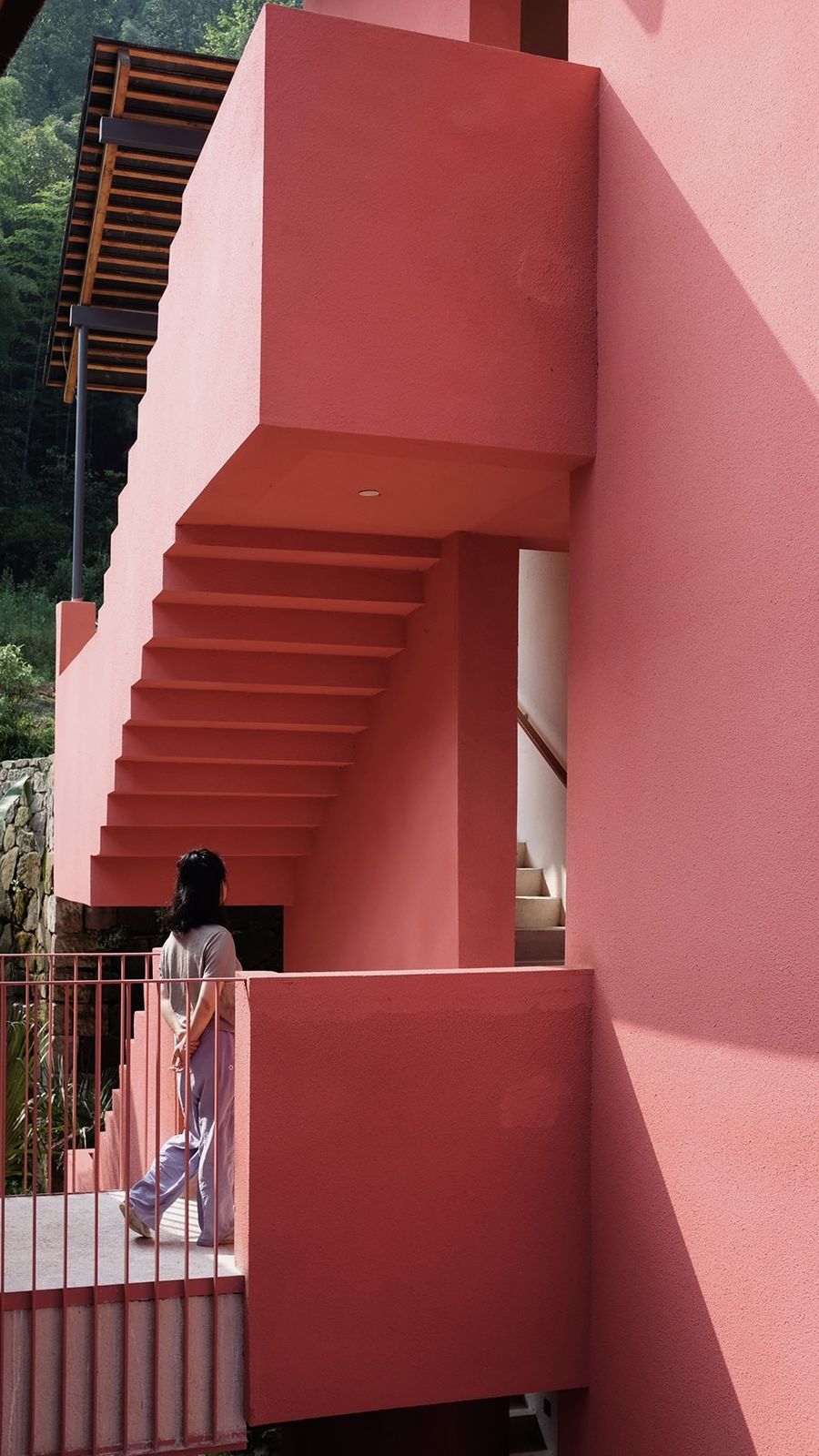
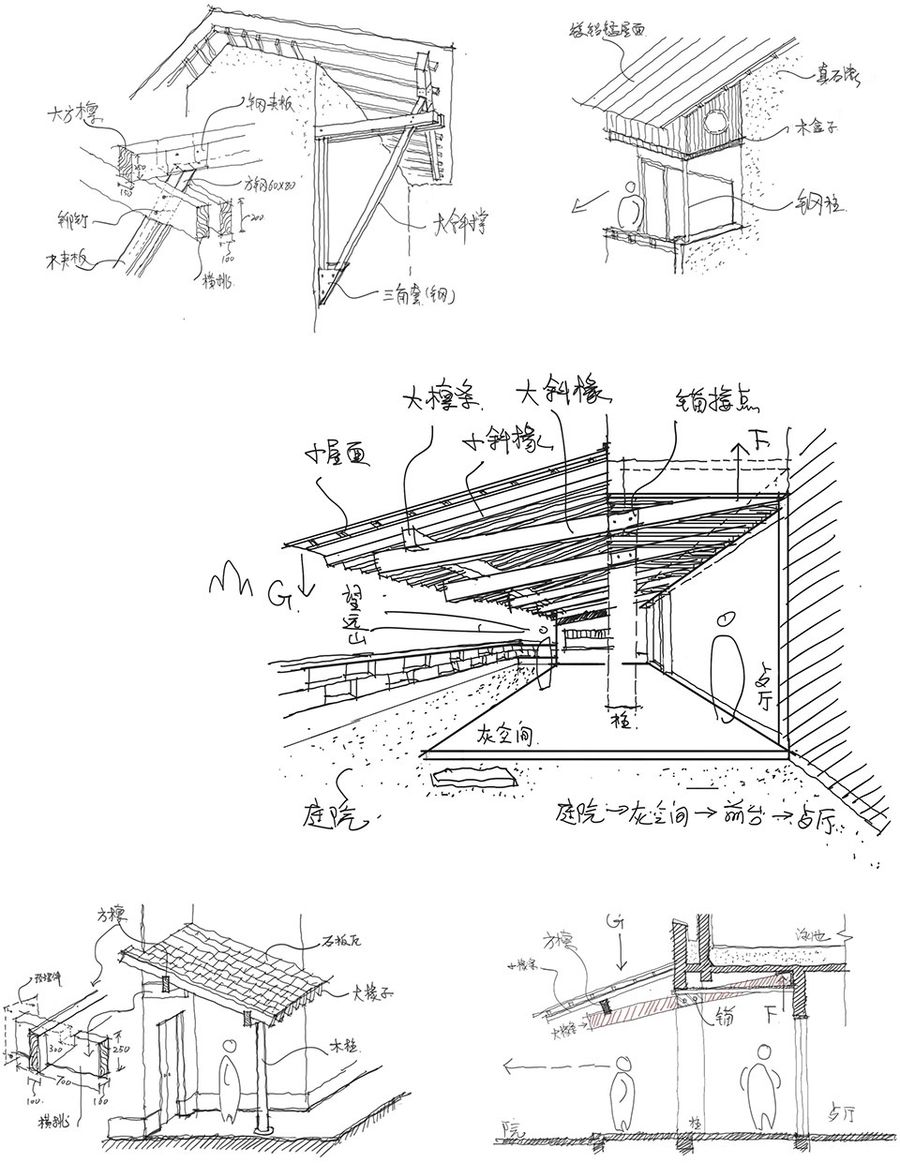
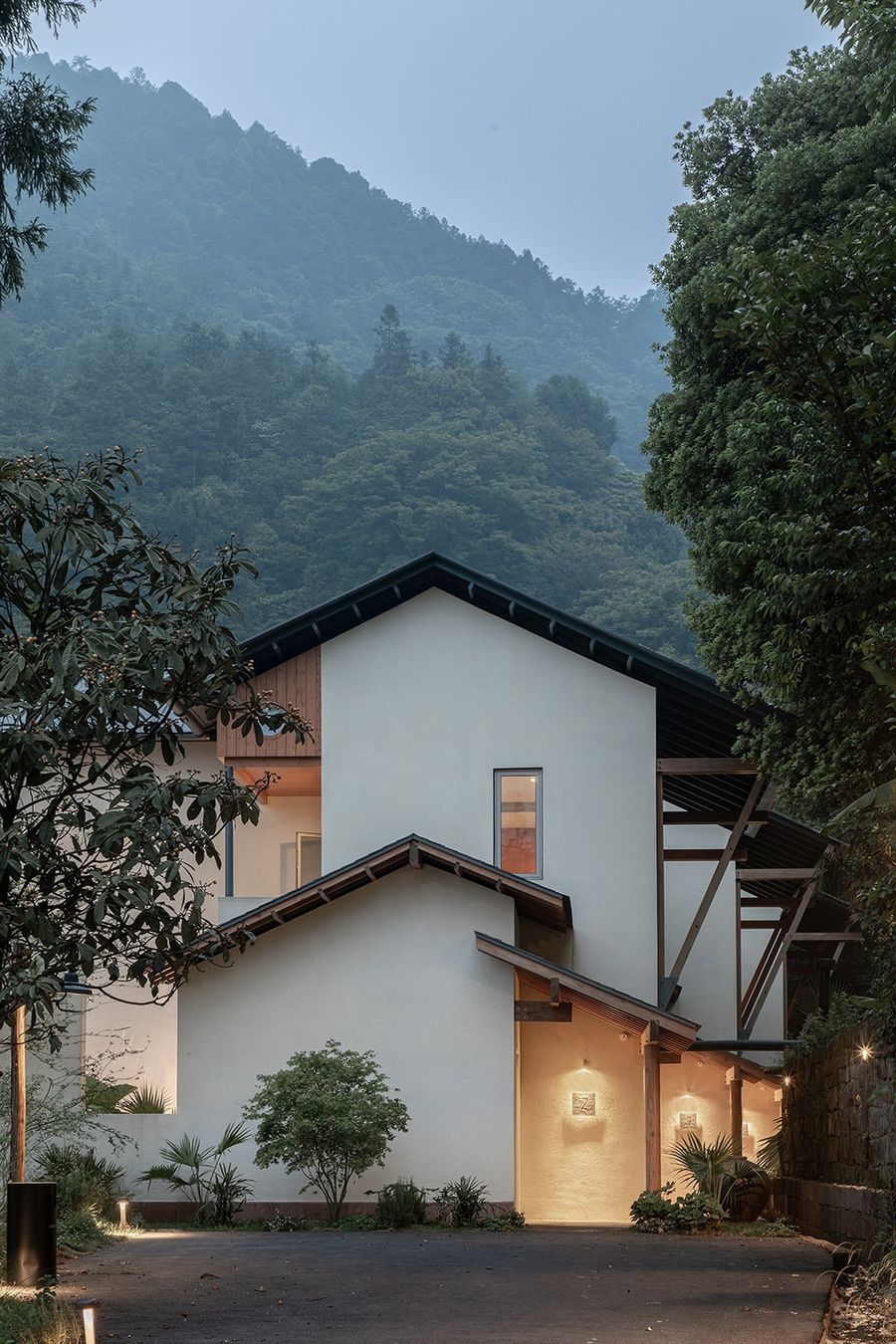
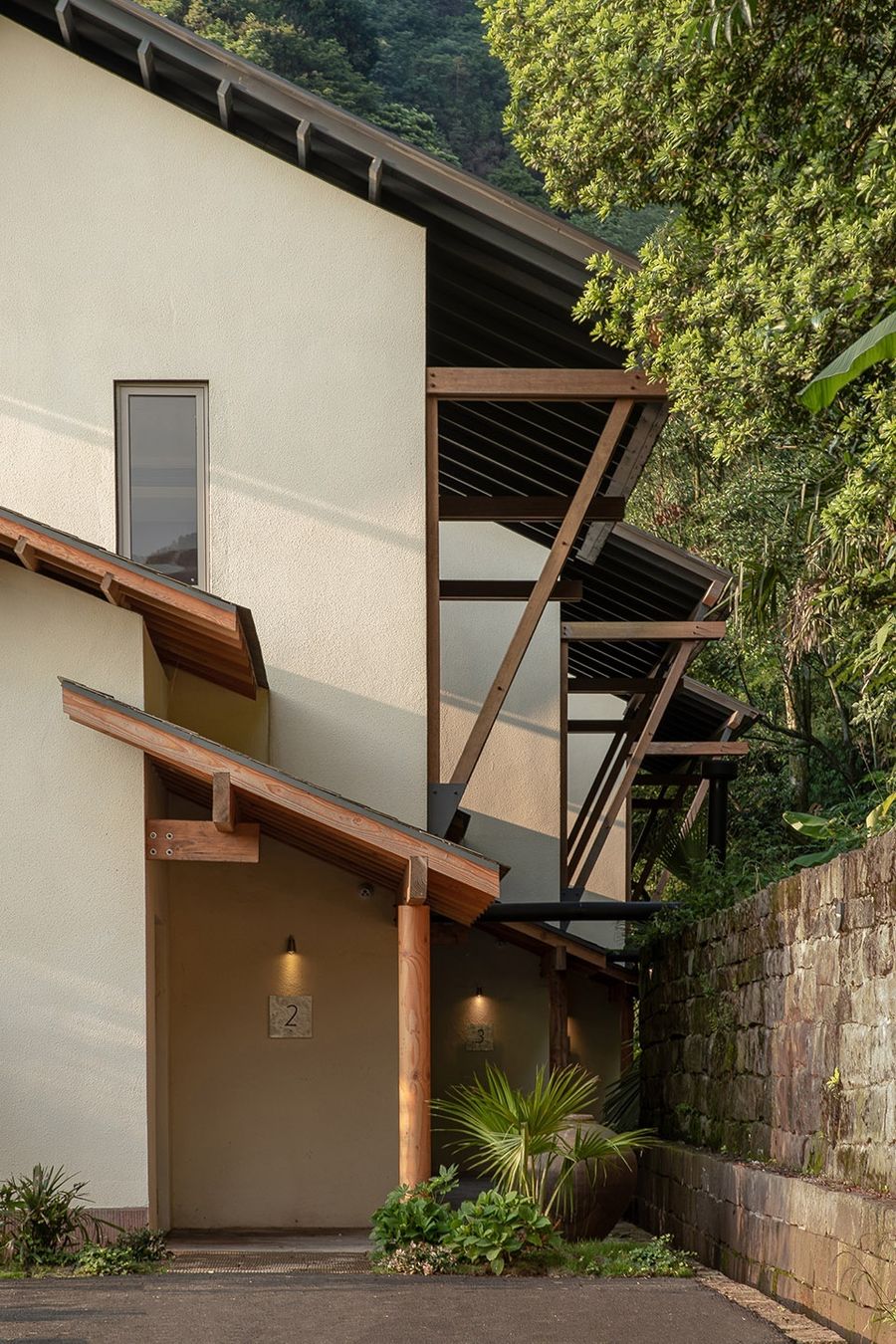
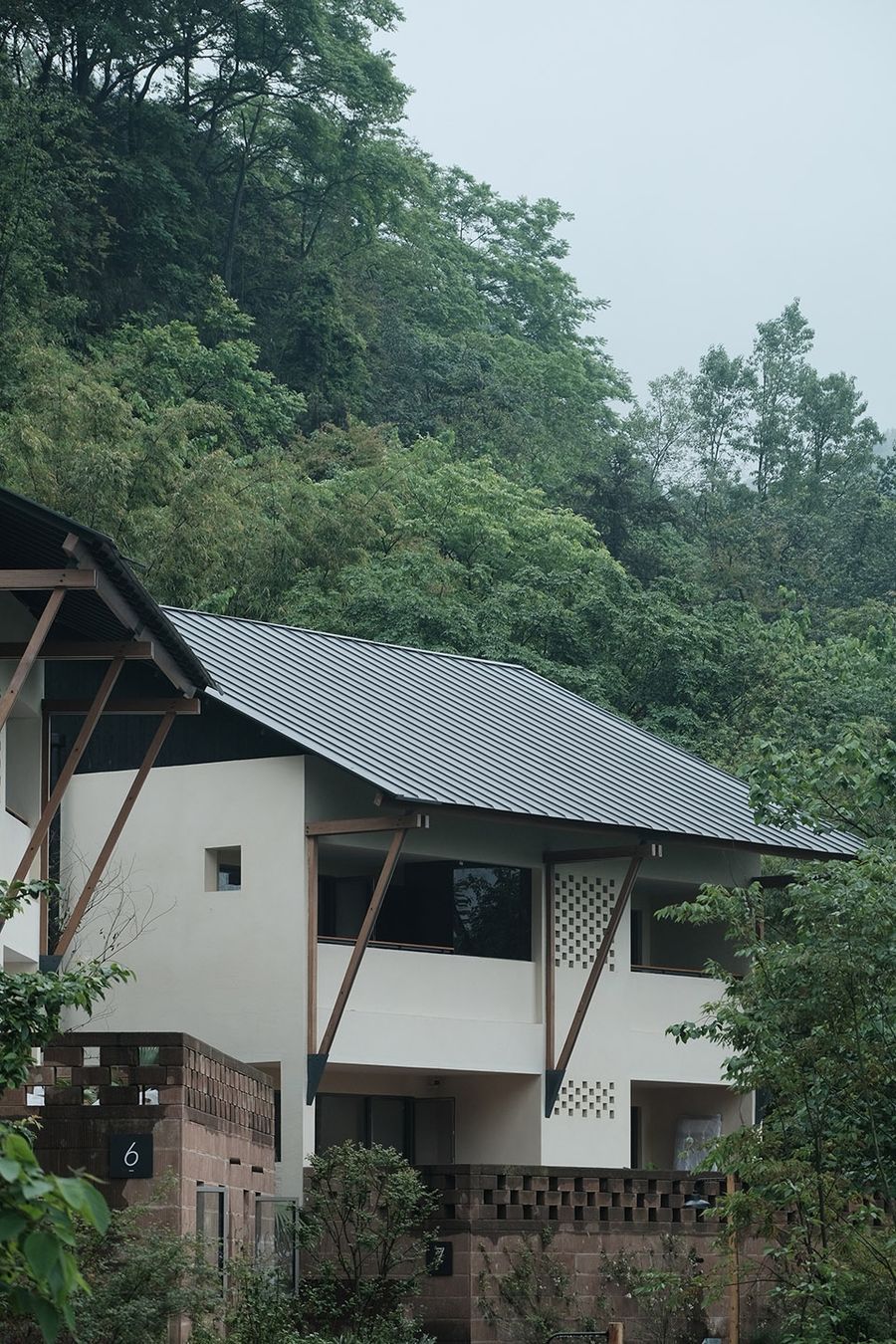
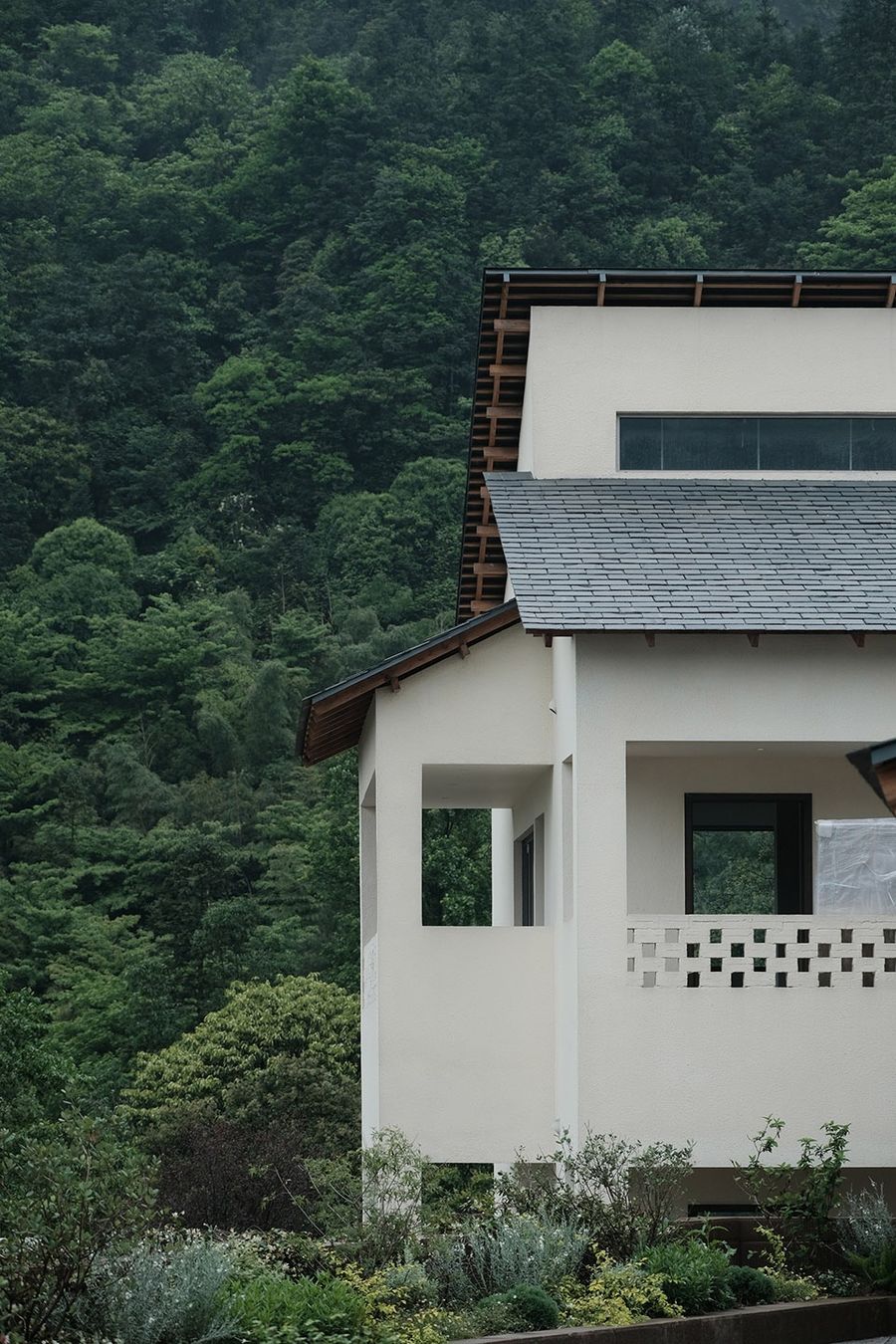
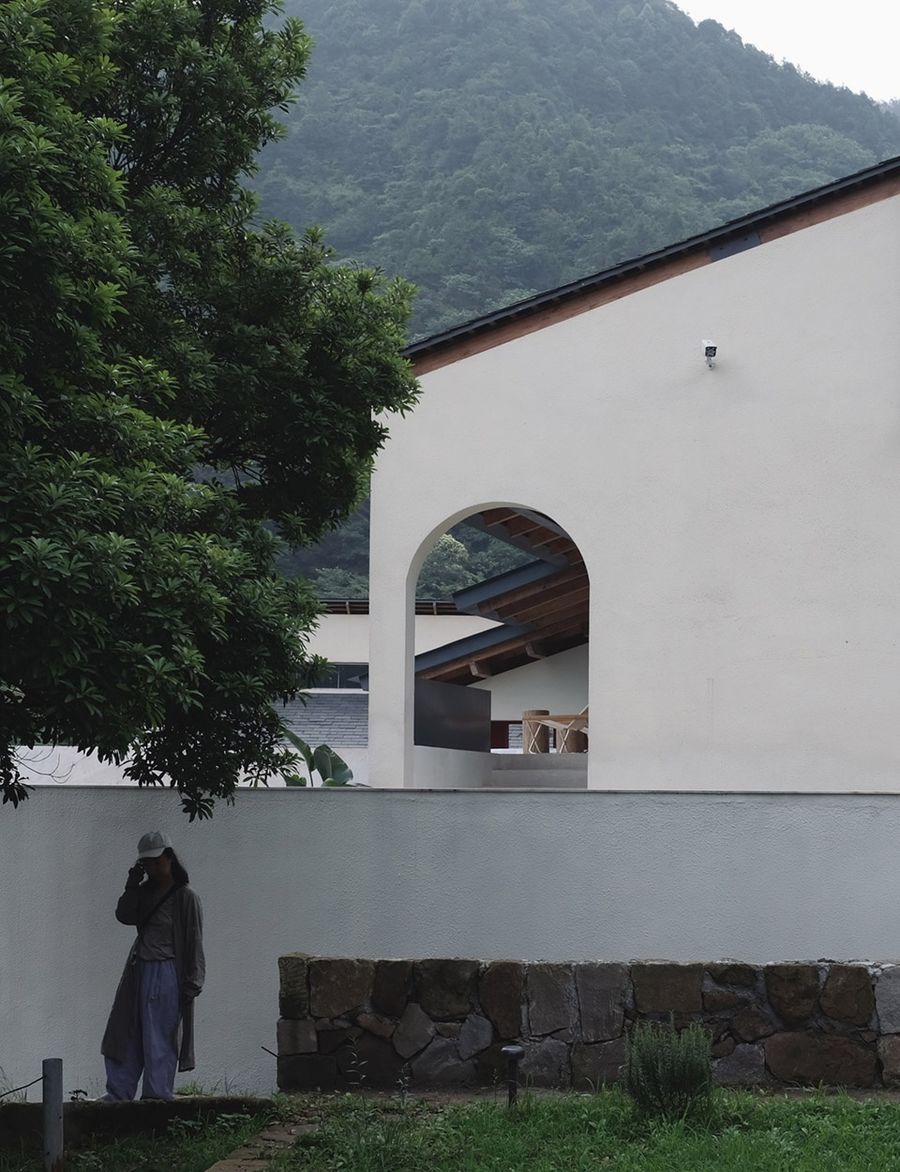
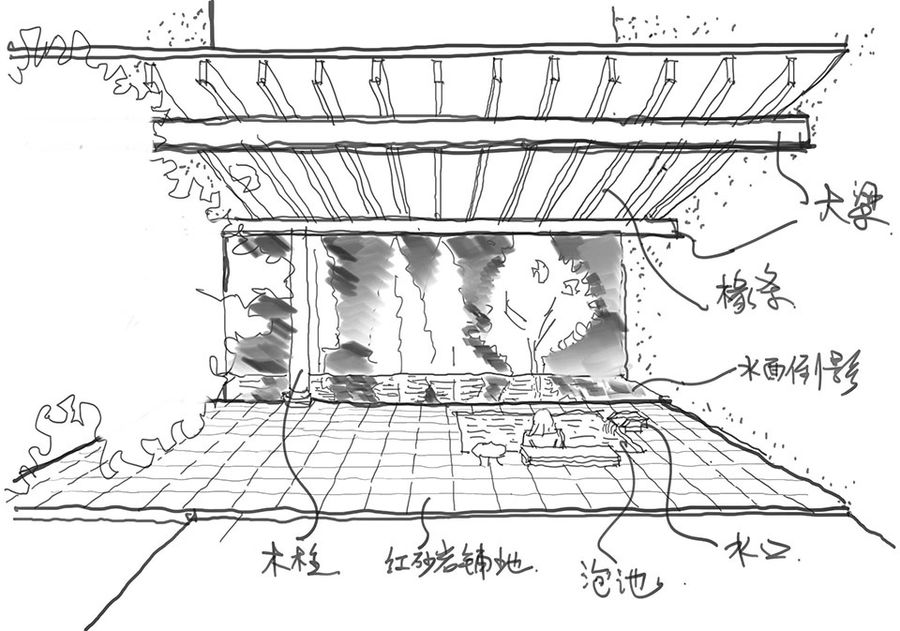
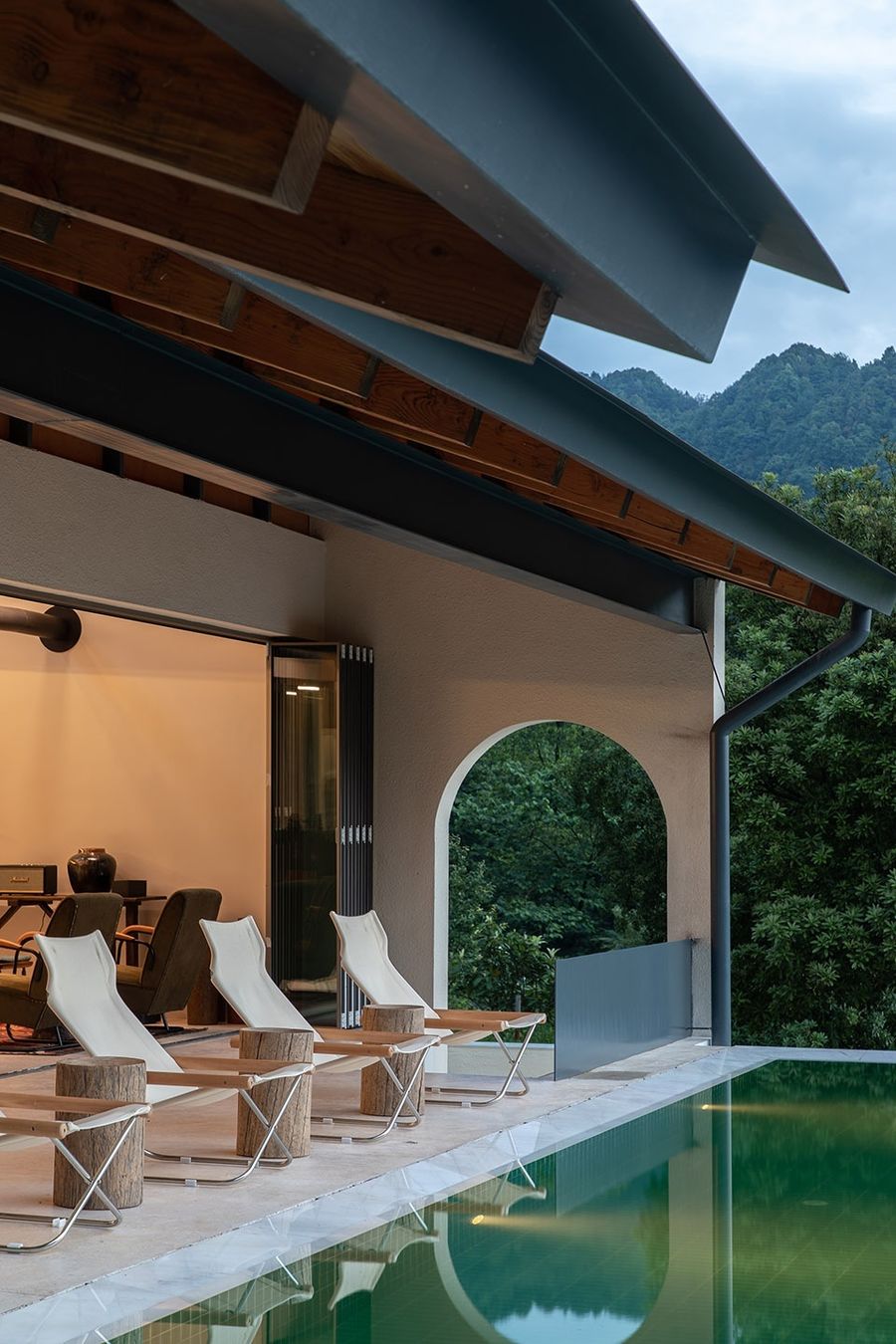
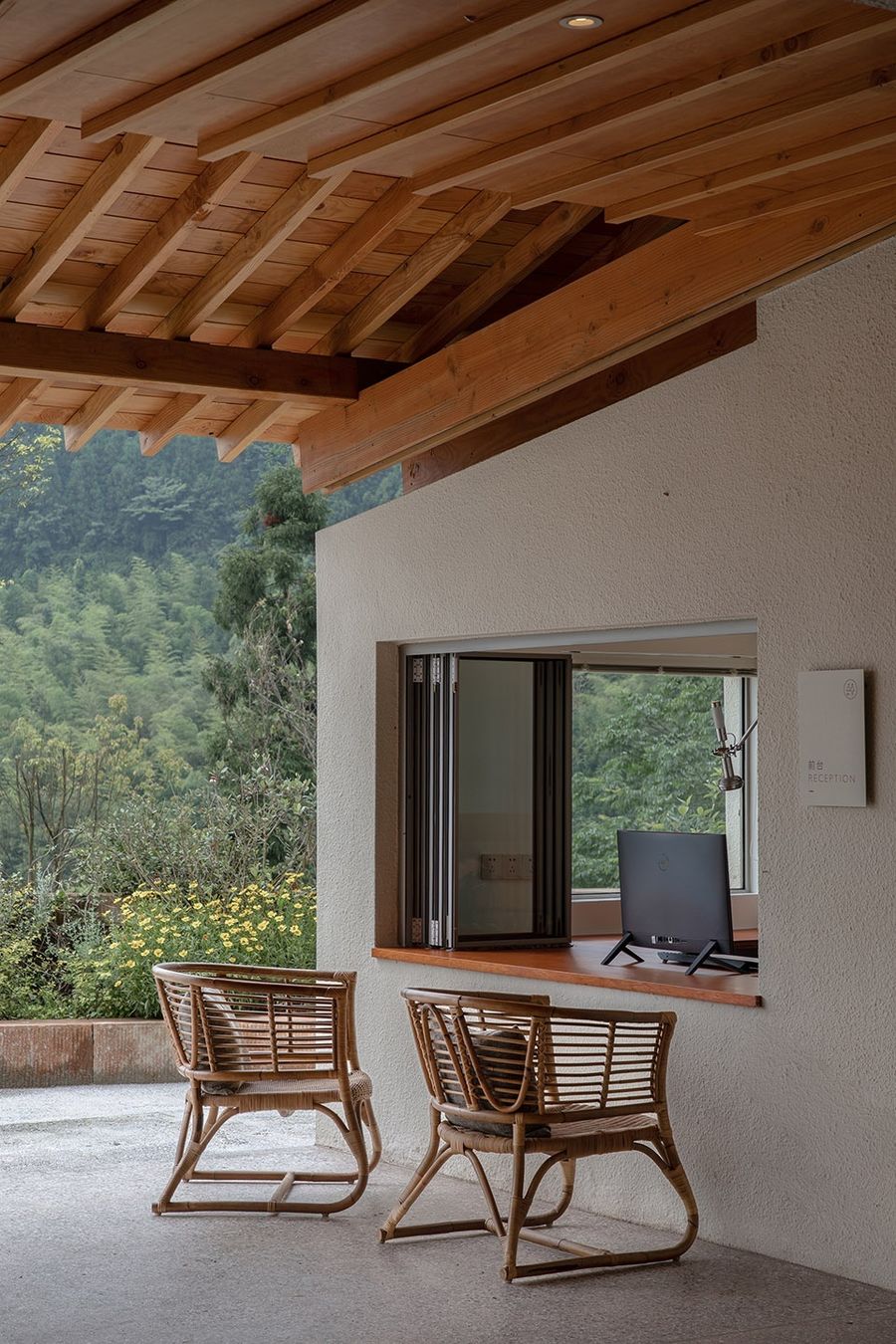
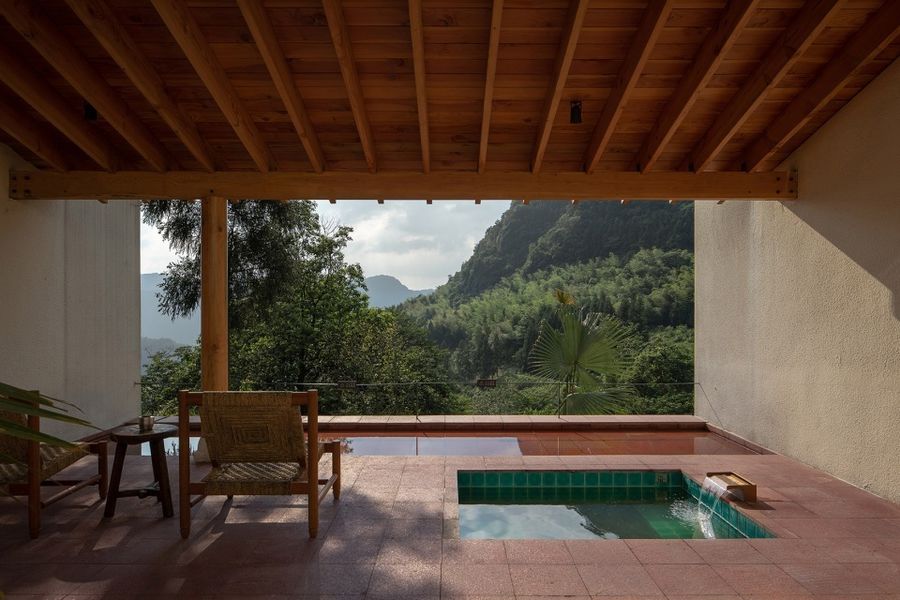
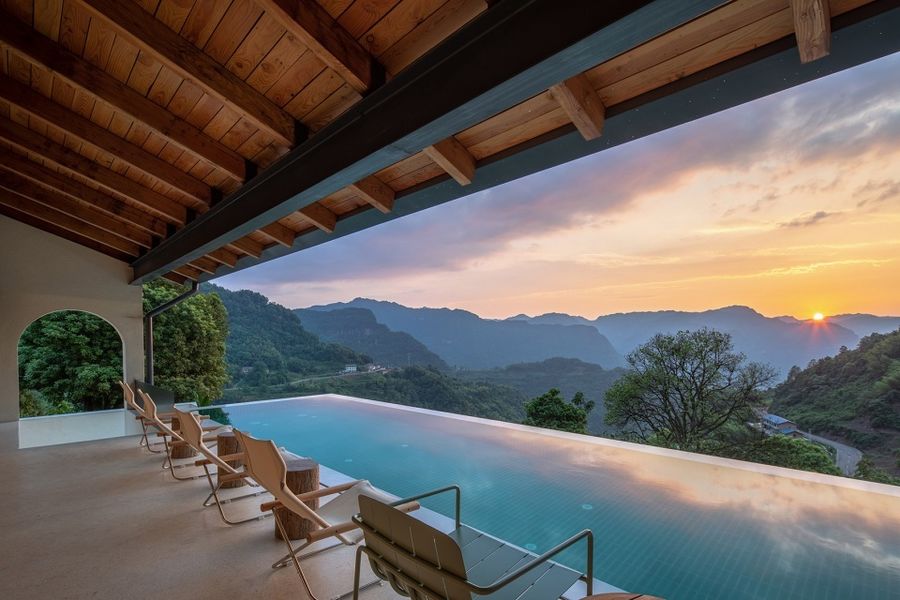
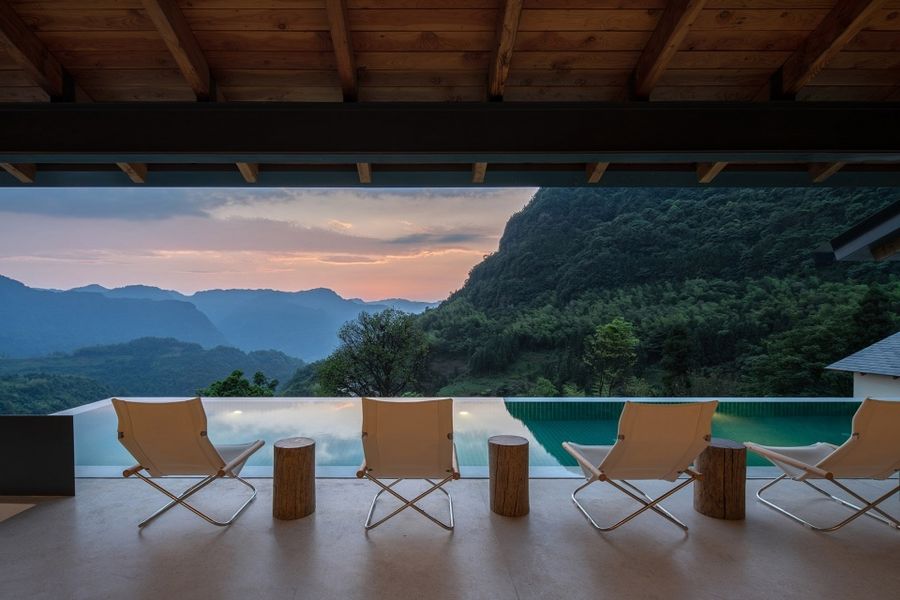

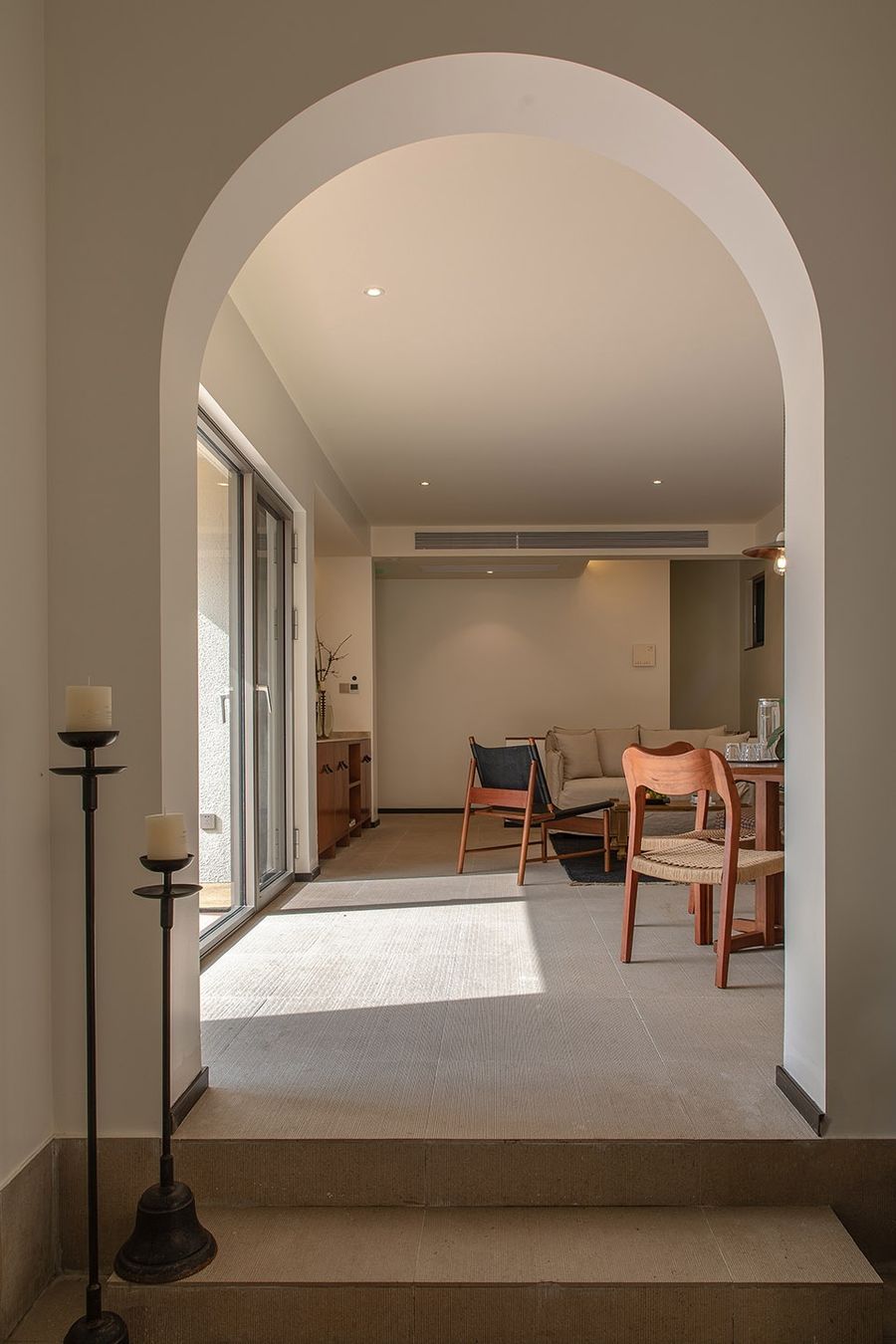
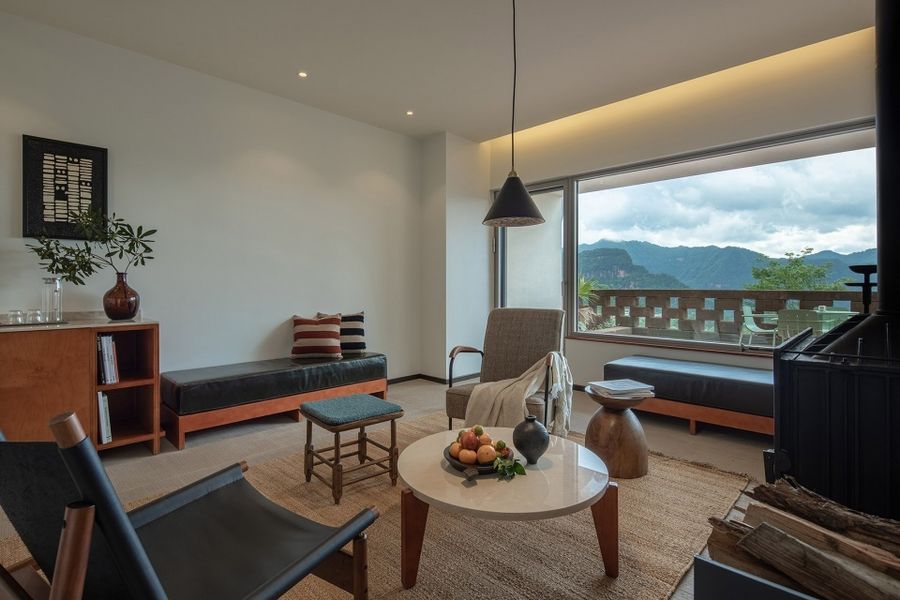

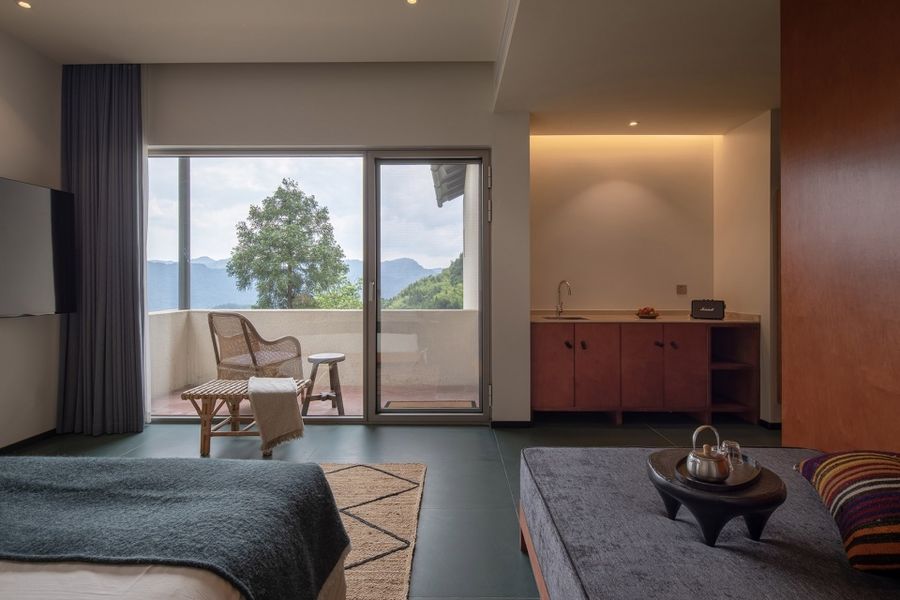
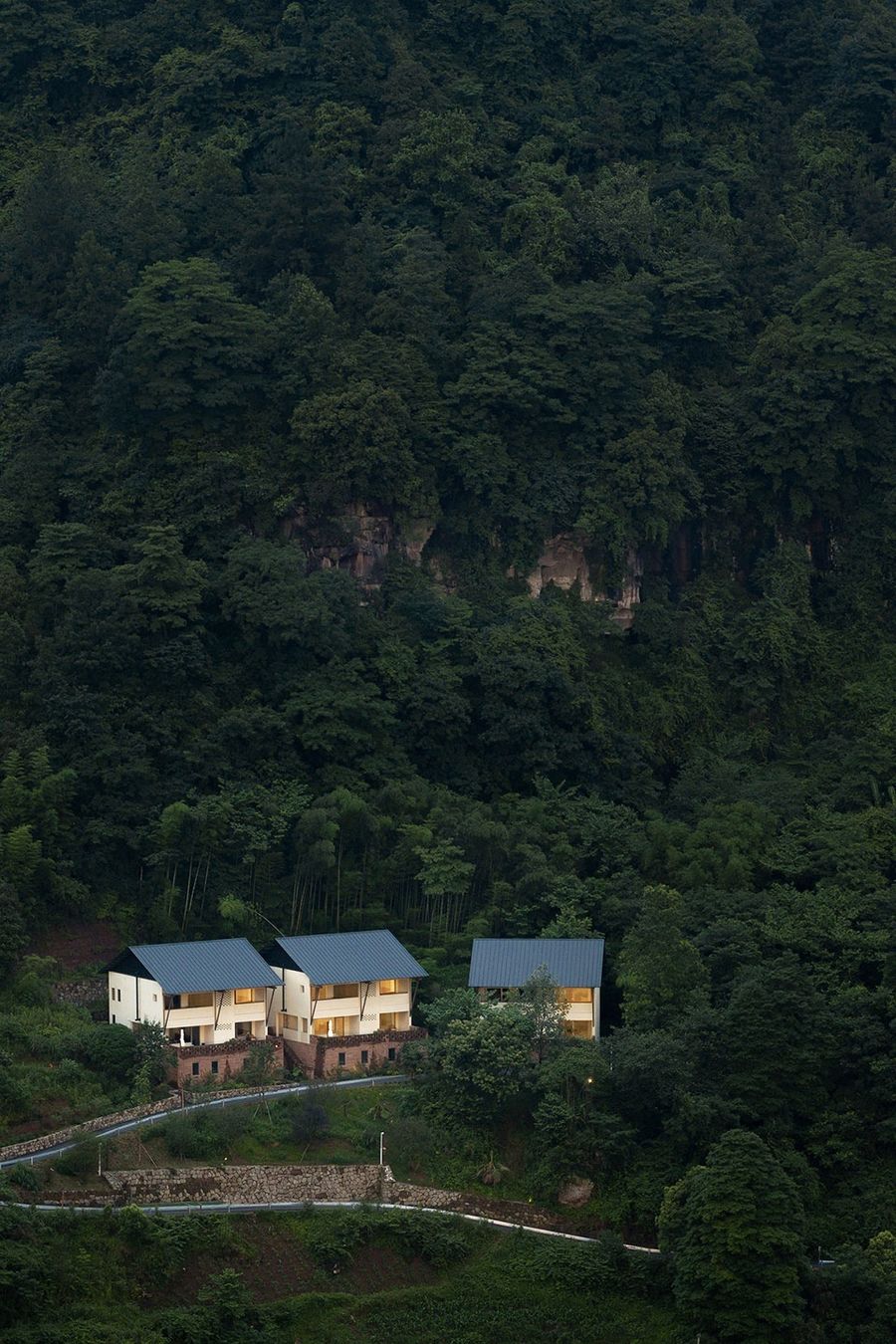
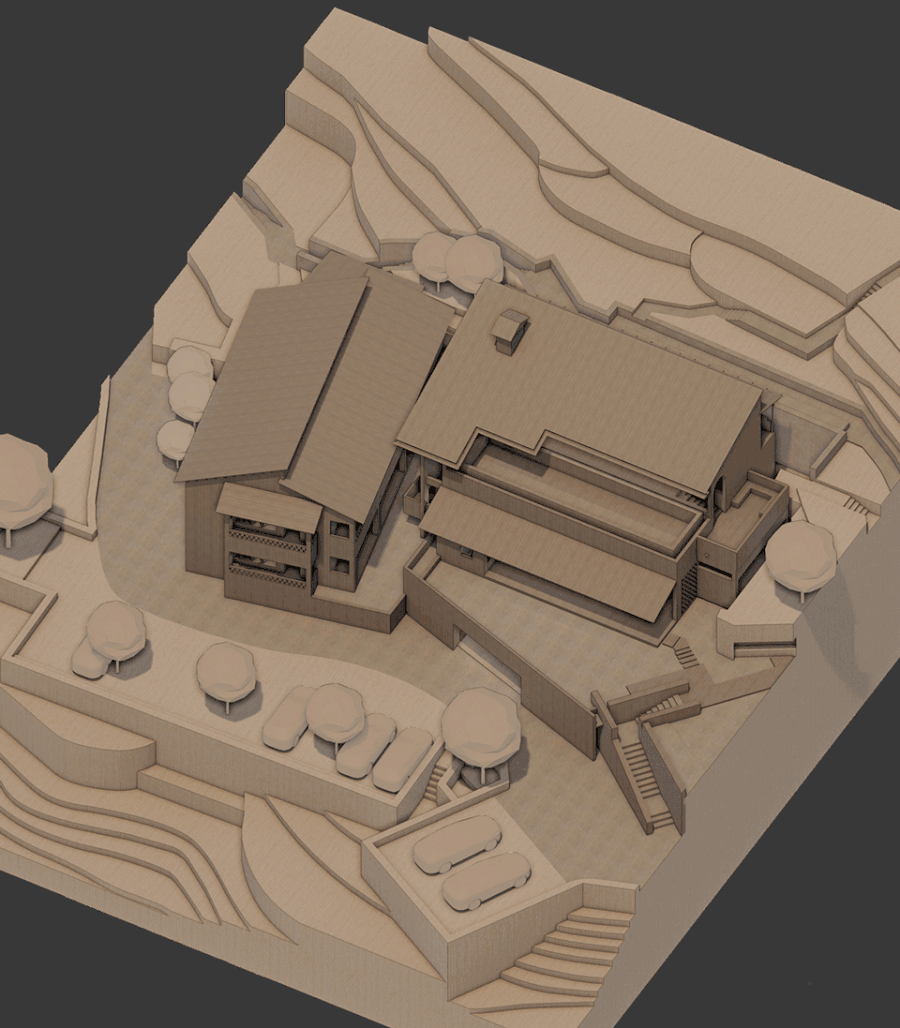
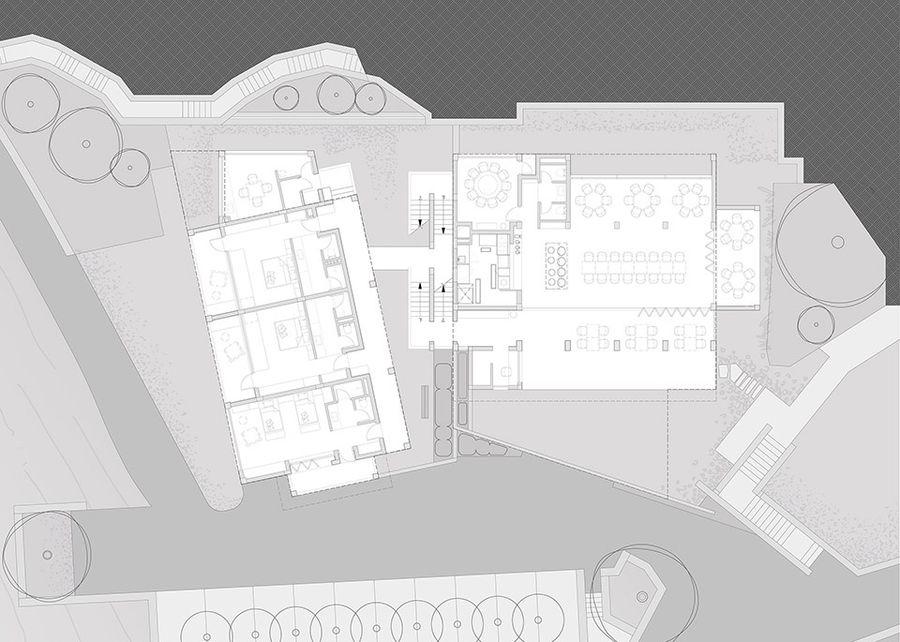
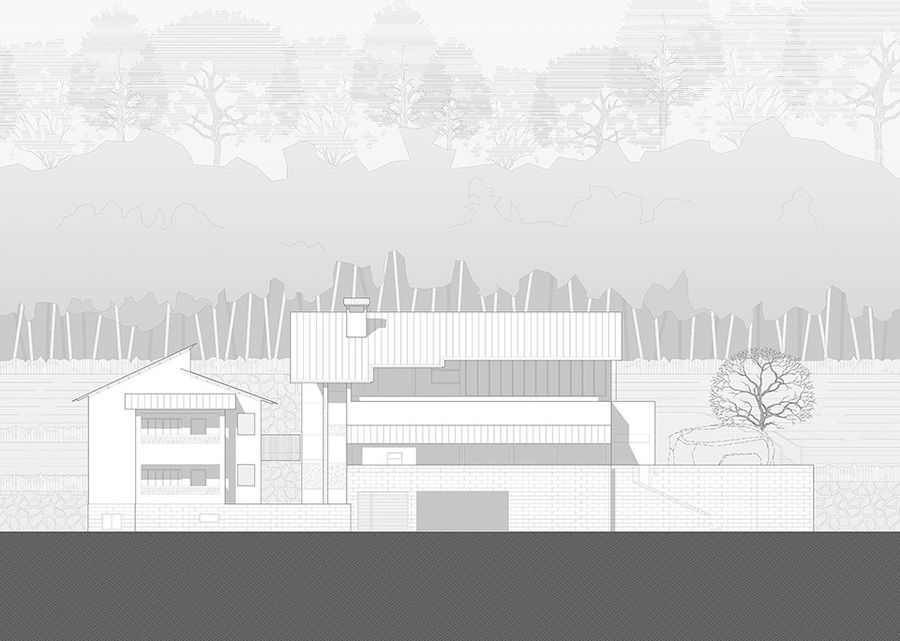
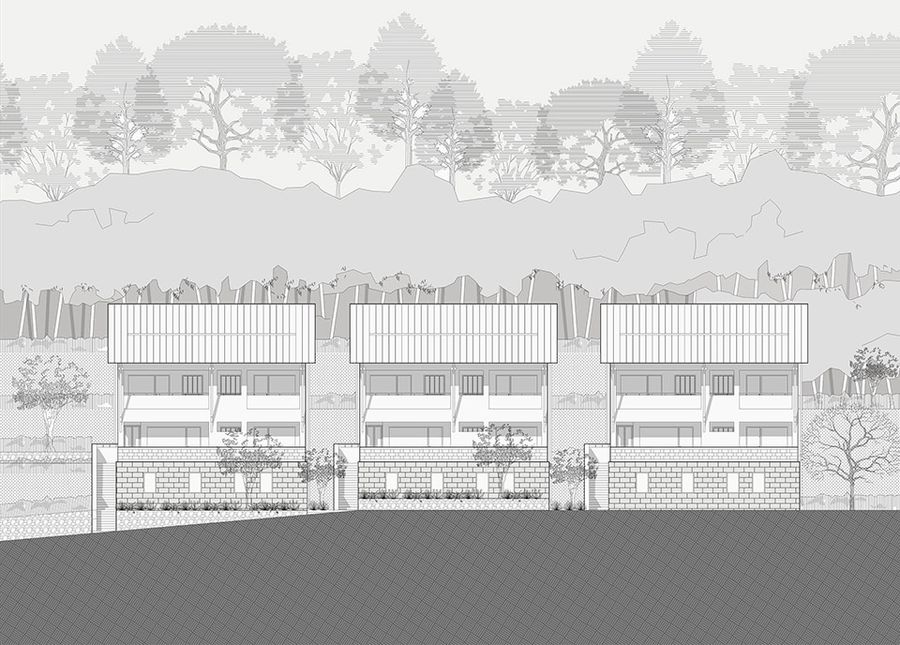
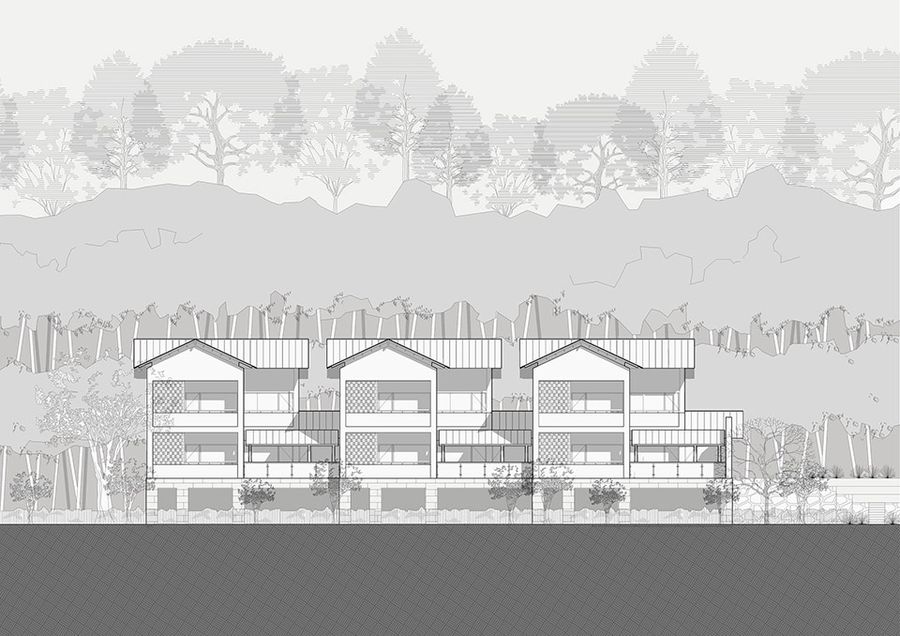
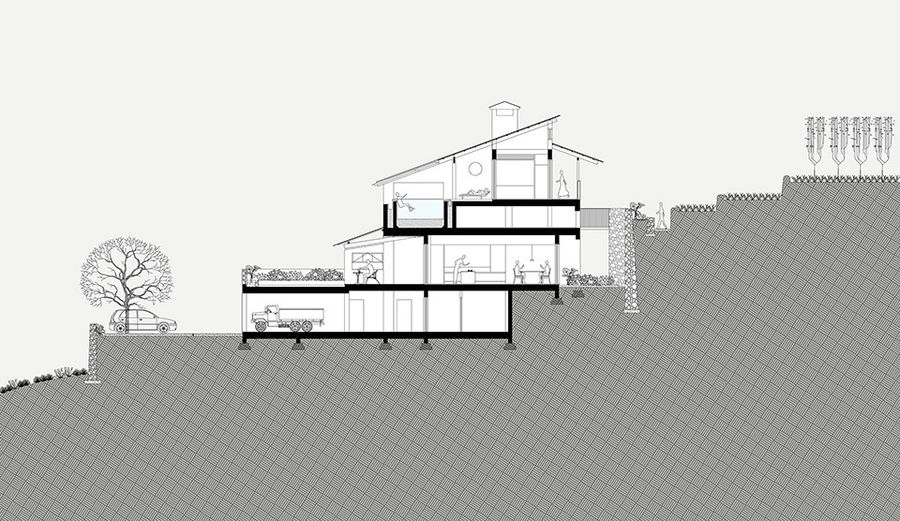
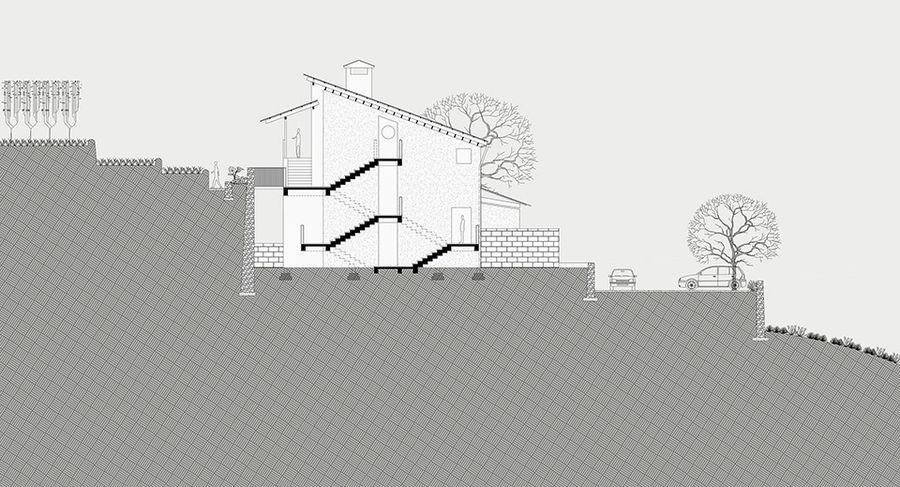
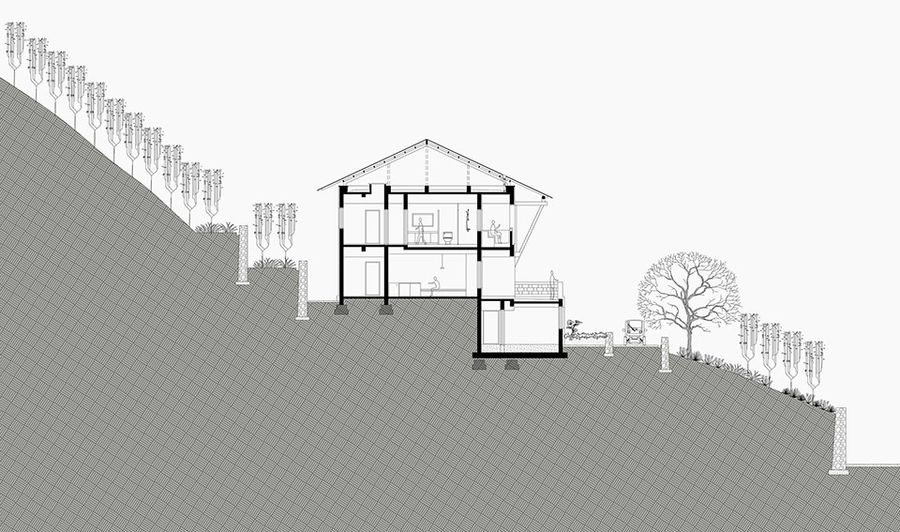
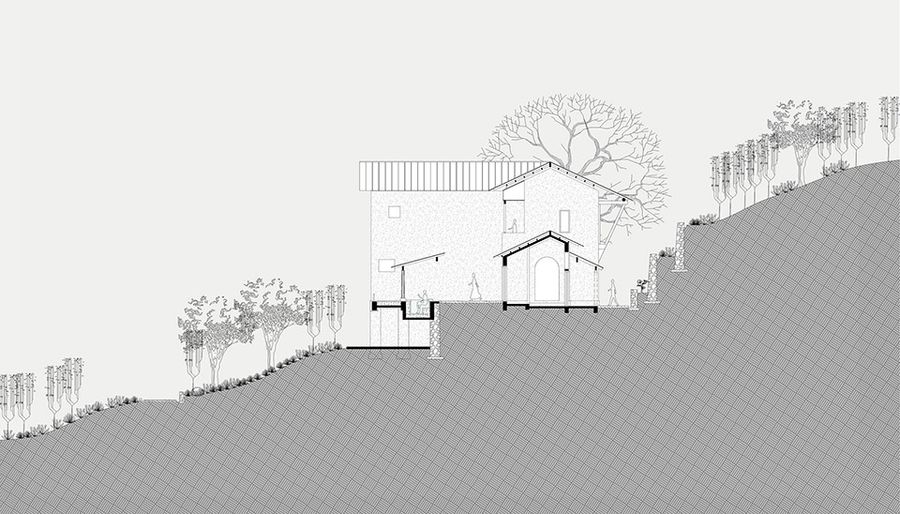
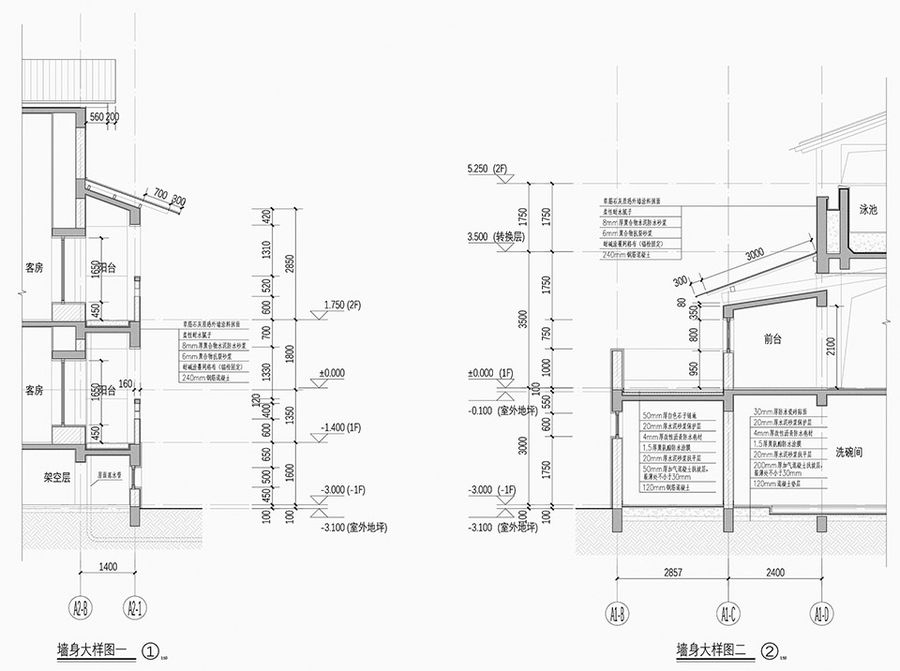
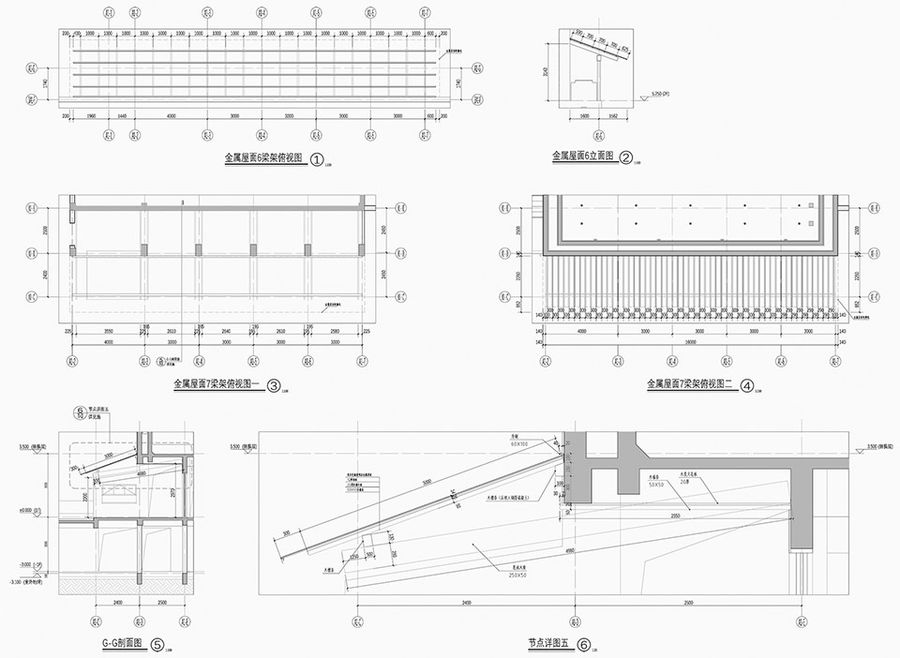











評(píng)論(0)